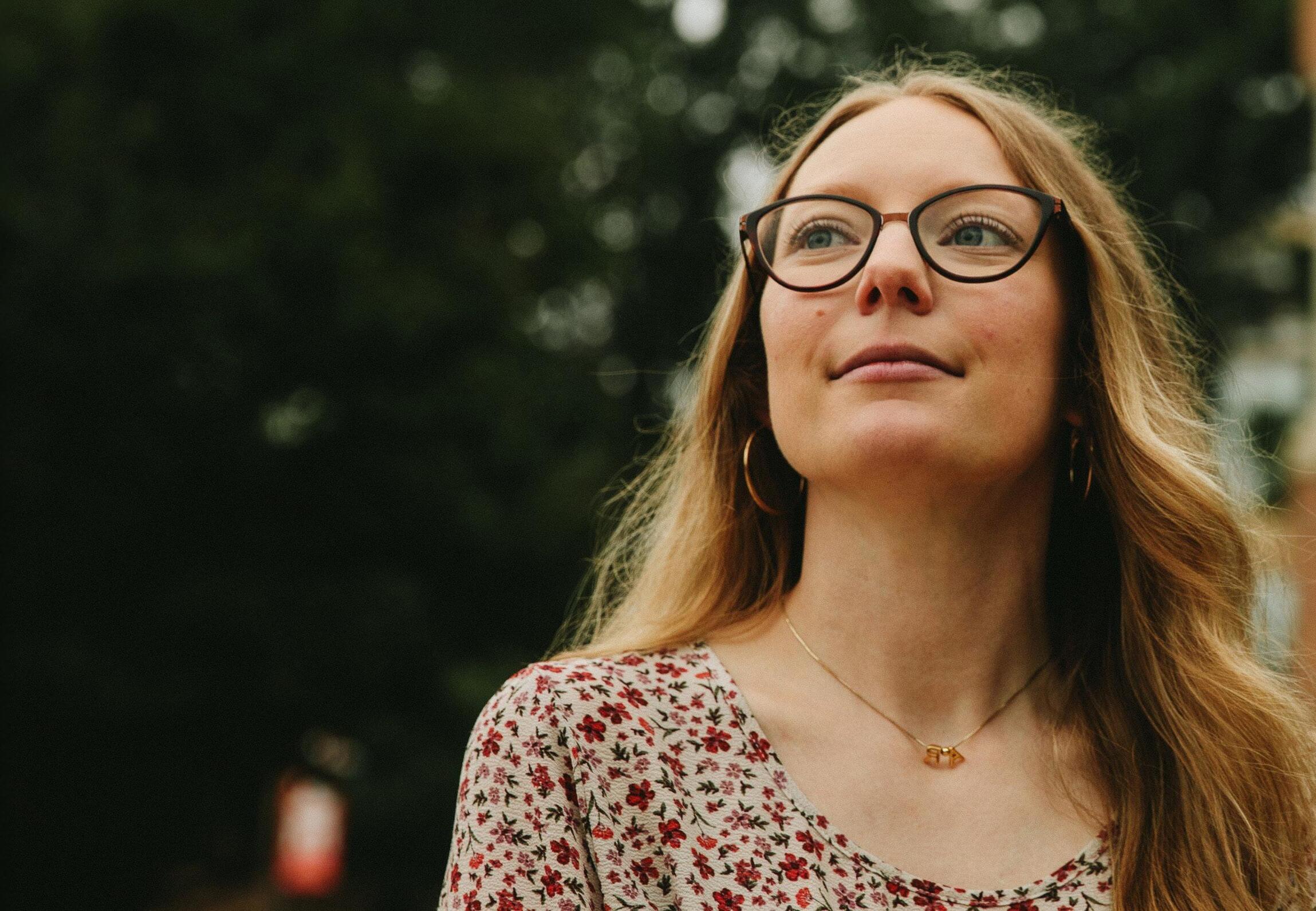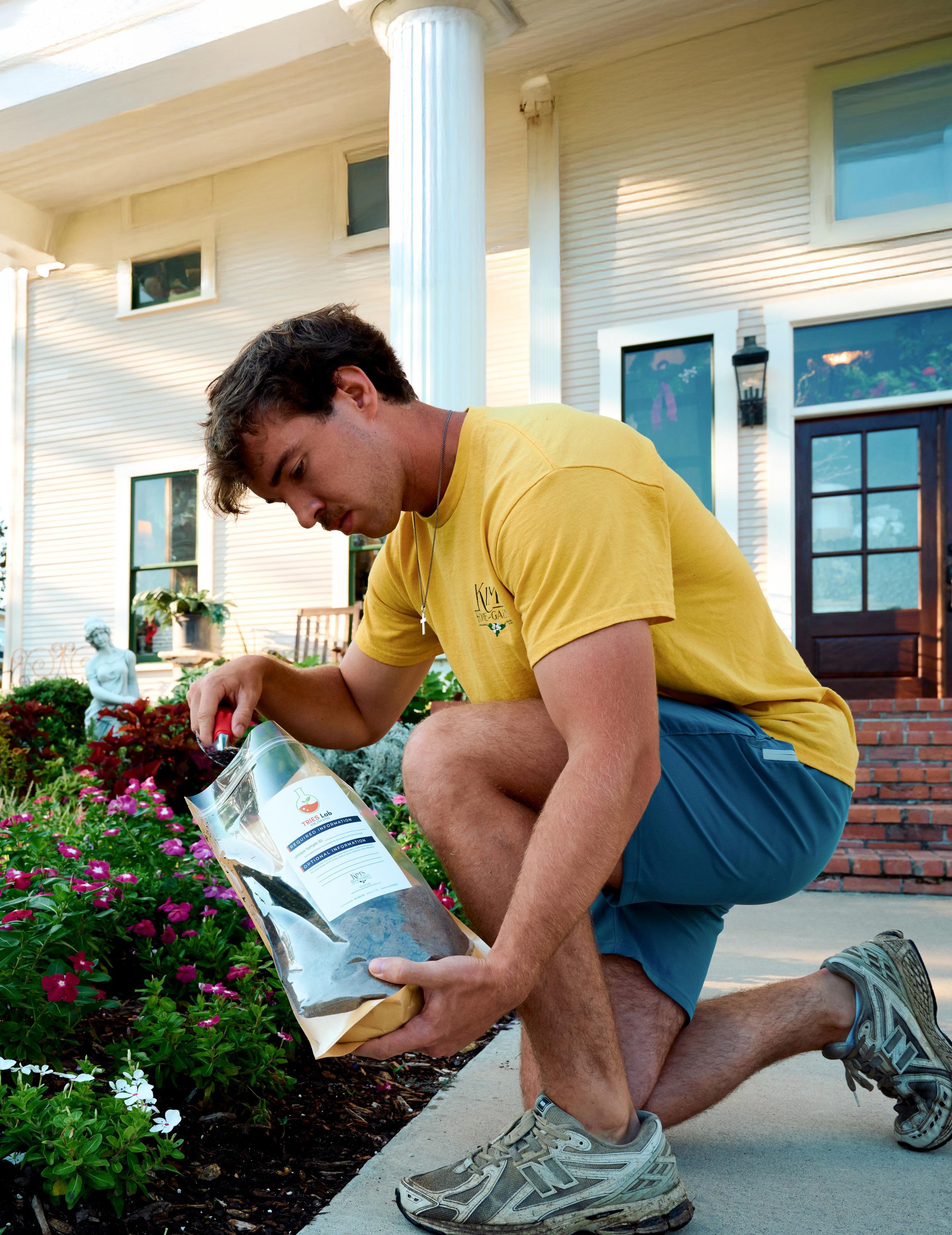
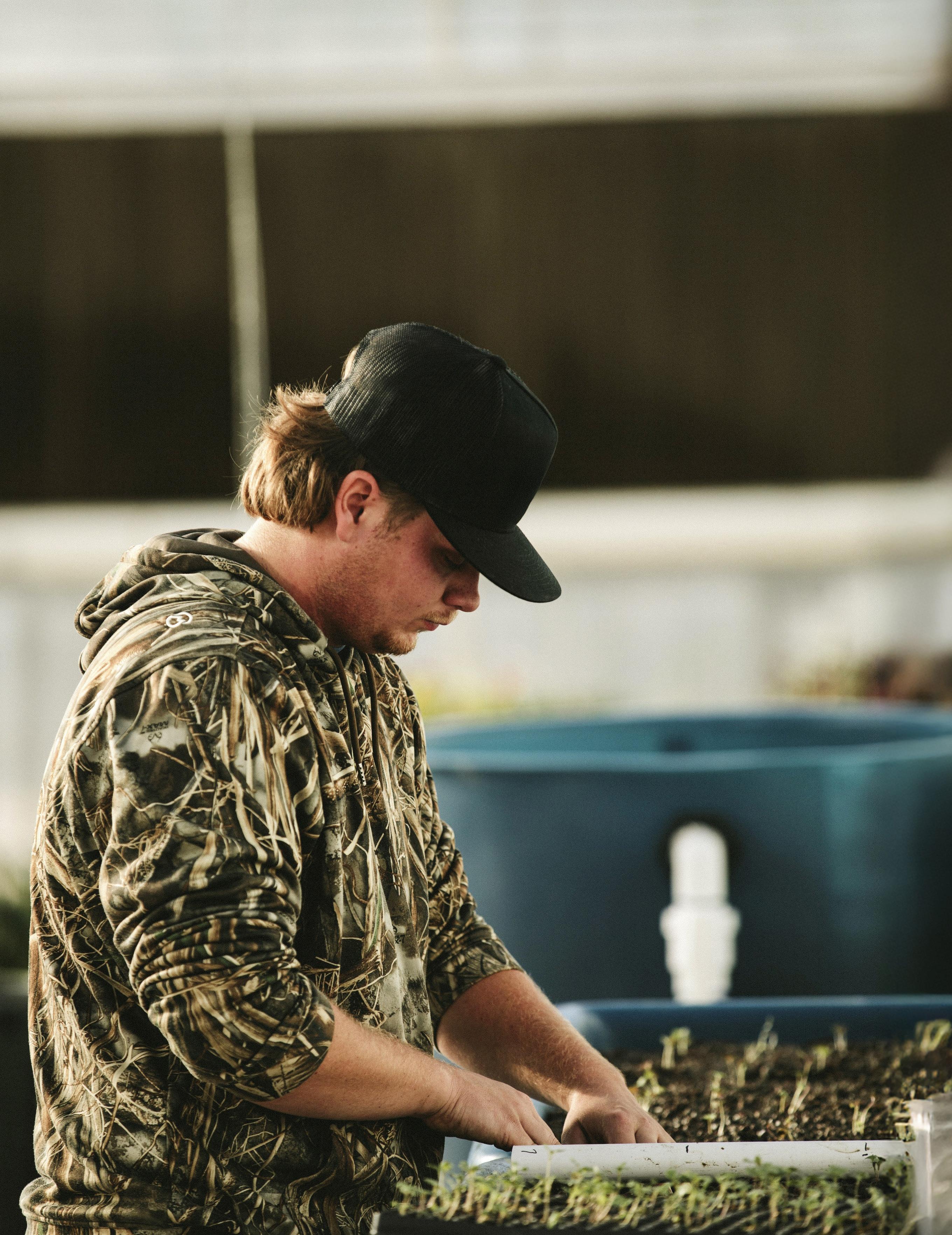



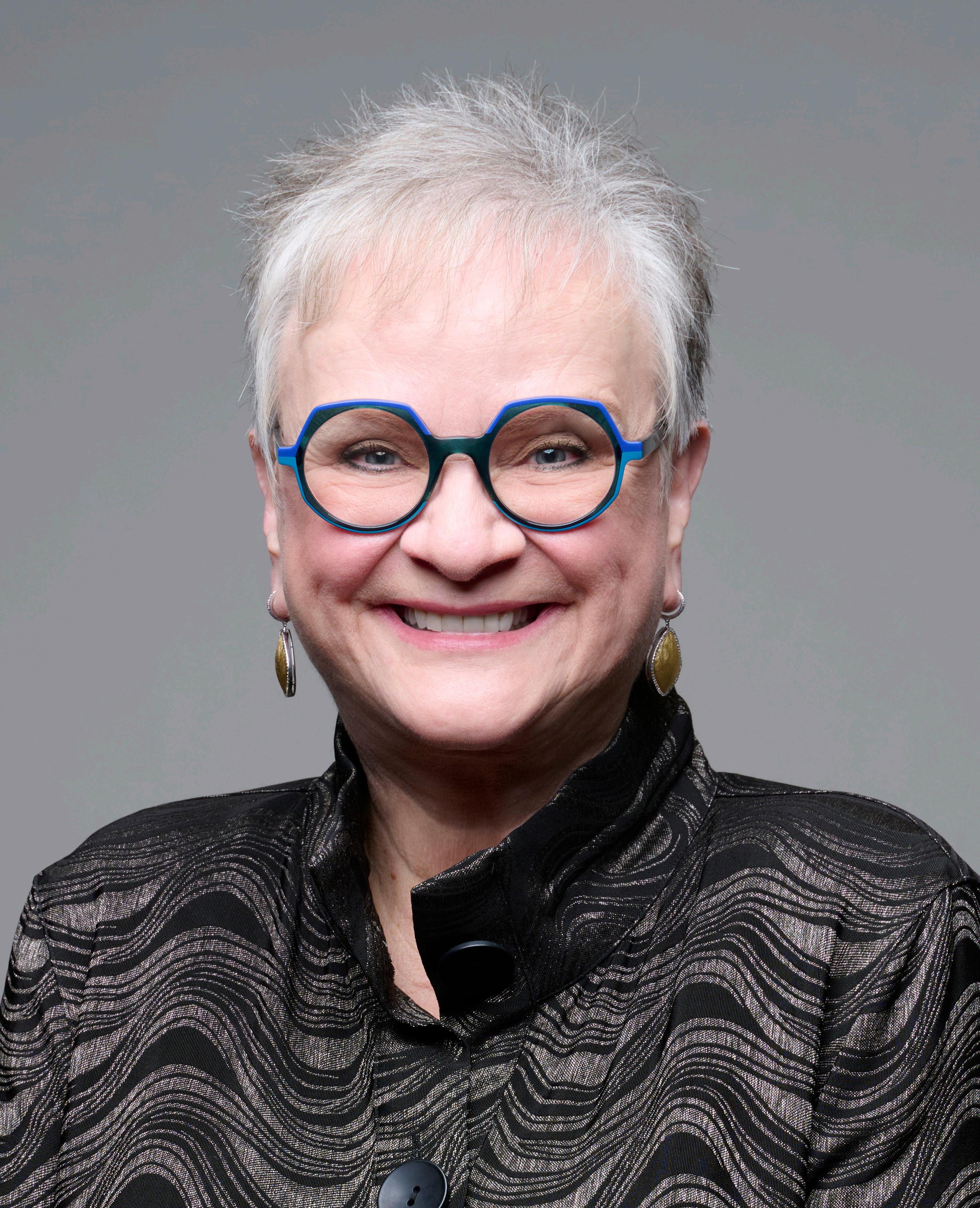
At Sam Houston State University, we are committed to providing an education that prepares students not just for their next step, but for a lifetime of opportunities. The Bearkat experience is defined by high-quality teaching, hands-on learning and the kind of personal guidance that helps students discover their strengths and achieve their goals.
In this issue of Heritage Magazine, you will see how that commitment takes shape. You’ll meet students who are finding their way with the help of dedicated mentors, financial guidance and career preparation resources. You’ll see how faculty and staff create opportunities for students to connect what they learn in the classroom to realworld challenges.
Before they even step foot on campus, future Bearkats are placed on the fast-track to success through innovative initiatives such as the Bearkat Advantage Program. Once here, students receive ongoing guidance on their journey from Student Money Management and the Career Success Center.
Through Academic Community Engagement courses, we bring students into realworld scenarios where they can apply the things they’re learning to help improve their community. We see this through our partnership with MD Anderson, where Bearkats are getting hands-on medical experience and helping in the fight against cancer.
You’ll also read about the broader impact of this work. From strengthening local schools and supporting small businesses, to advancing cancer research and agricultural education, SHSU’s academic programs are driving progress that benefits Texas and beyond.
Every story in this issue reflects what makes a Sam Houston State education distinctive: quality instruction, meaningful experiences and outcomes that last long after graduation. That is the promise we make to every student who chooses to be a Bearkat.
Alisa White, PhD President,
Sam Houston State University
Texas State University
Alan L. Tinsley, Chairman Madisonville
Stephen Lee, Vice Chairman • Bastrop
Charlie Amato, Regent San Antonio
Duke Austin, Regent Houston
Sheila Faske, Regent Rose City
Dionicio (Don) Flores, Regent El Paso
Russell Gordy, Regent Houston
Tom Long, Regent Dallas
William F. Scott, Regent Nederland
Donovan Brown, Student Regent San Marcos
Brian McCall, PhD, Chancellor Austin
Sam Houston University Foundation Board of Trustees
Russell S. Molina, Chairman Houston
Joel R. Michael, Vice Chairman • Friendswood
Charles W. Jones III, Secretary Huntsville
Ferne S. Frosch, Treasurer Huntsville
E. Brooke Beierle Stafford
Mia D. Gradney Richmond
John Hoyt, Jr. Woodway
Brian J. Starr Houston
DeeAnn Thigpen Houston
Christopher L. Tritico, Sr. Houston
Ryan M. Weber • Houston
Matthew Bethea (Ex-Officio) Huntsville
Amanda Withers (Ex-Officio) Huntsville
Chief Marketing Officer and Public Information Officer
Jeff Harris
Editor Emily Binetti
Writers Campbell Atkins
Emily Binetti
Mikah Boyd
Emilee White
Creative Direction & Design
Zack Jones
Photography Justin Calhoun
Tega Okperuvwe
Associate Director of Print Services
Lori Proctor
Heritage Online Mikah Boyd
Every effort has been made to ensure the information contained in this issue is accurate. We apologize for any errors or omissions and ask that you bring them to our attention.
Please report any corrections to: Integrated Marketing Communications Box 2105 Huntsville, TX 77341-2105 936.294.4406 heritage@shsu.edu
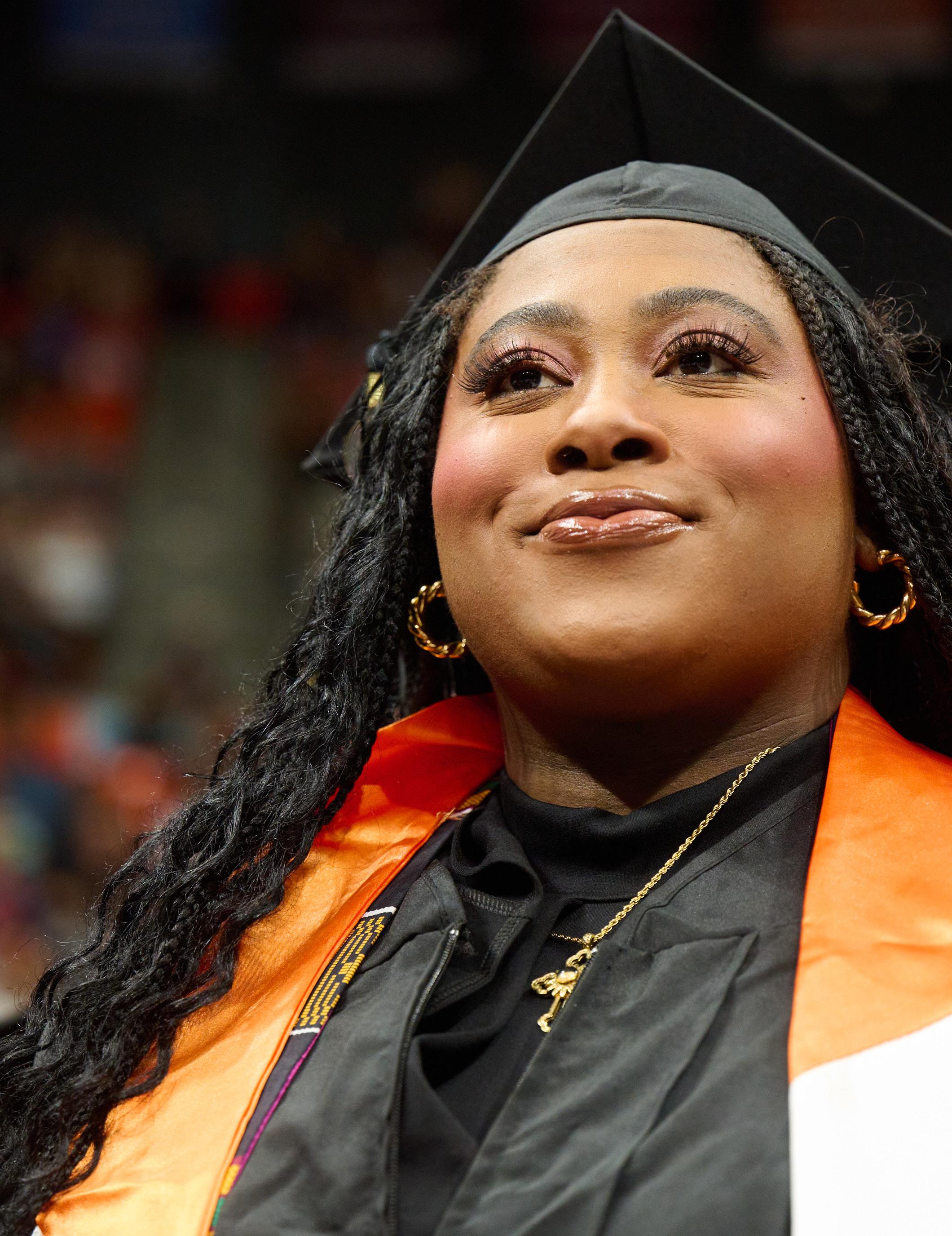
ELEVATE YOUR CAREER WITH AN ADVANCED DEGREE OR CERTIFICATION.
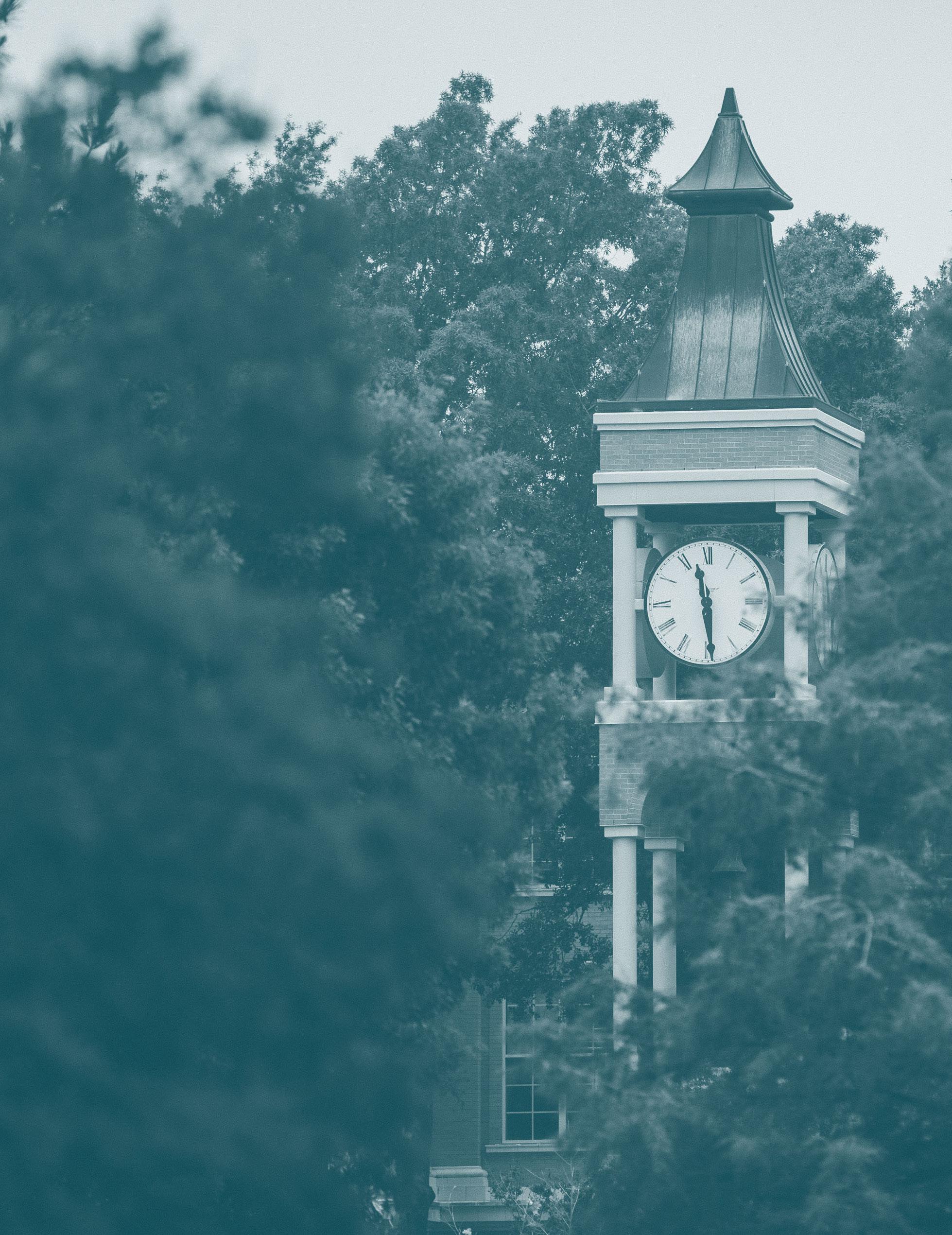
IN THIS SECTION:
Welcoming Every Bearkat Home
Mentorship & Momentum
Helping Bearkats Build Strong Financial Futures
Empowering Bearkats Through Connection & Career Readiness
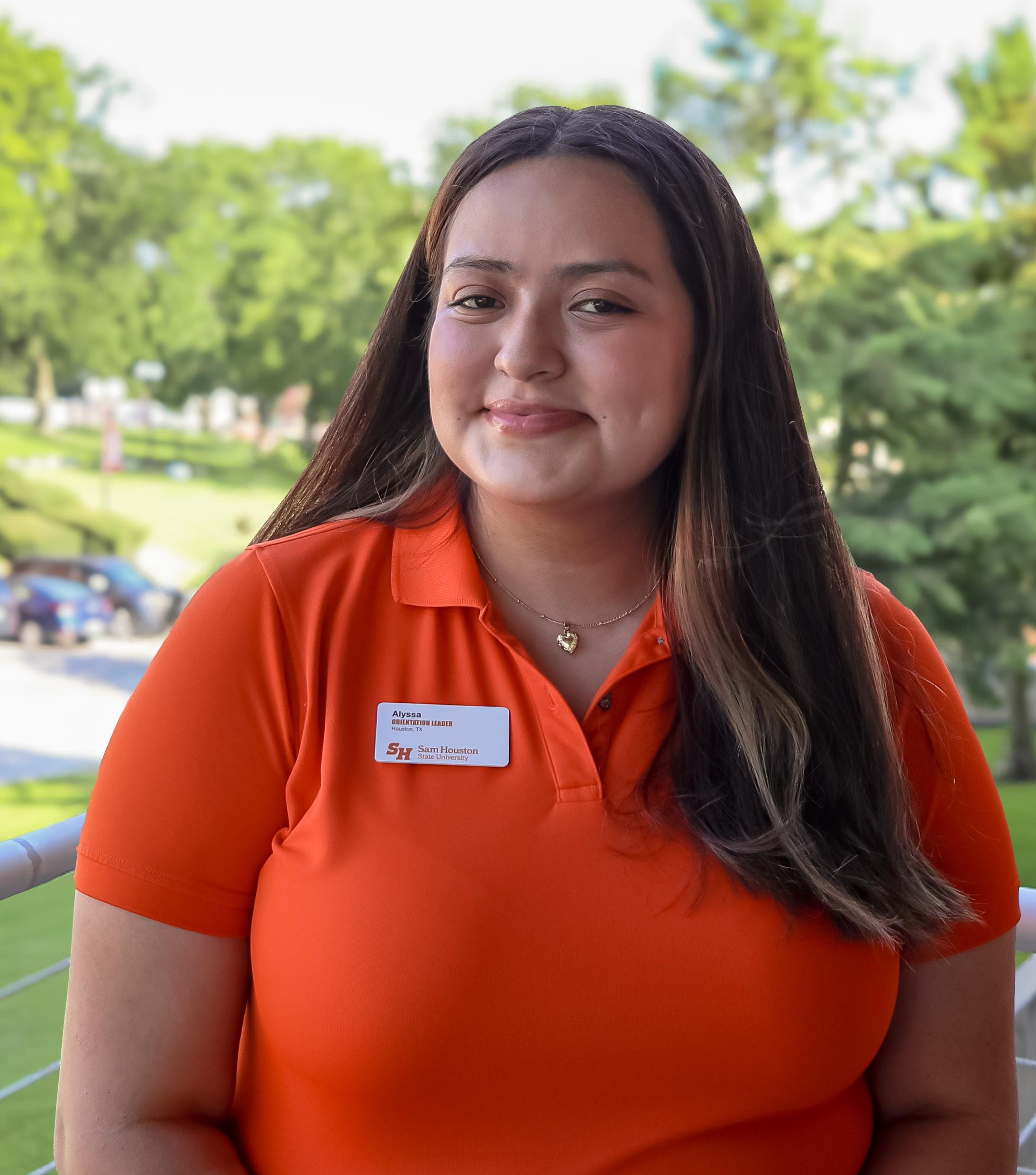
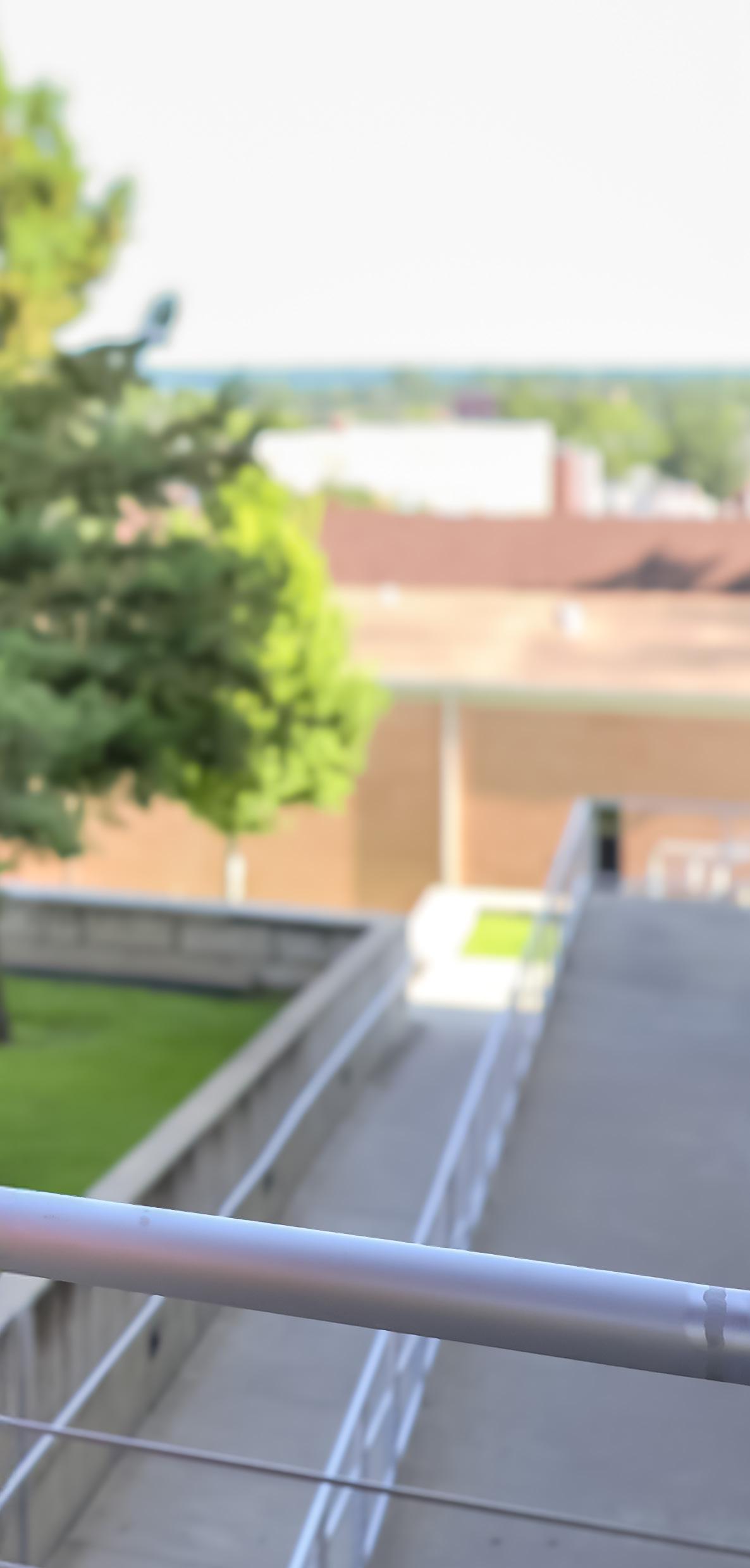
Sam Houston State University boasts a high percentage of first-generation and non-traditional students eager to make their mark on the world. Before they can hit the ground running, however, they need someone to show them the ropes. That’s where student orientation leaders like Alyssa Rodriguez thrive.
“Before choosing Sam, I took a tour of campus through a program that assists firstgen high school students aspiring to go to college,” said Rodriguez, a junior political science major and McNair Scholar. “I vividly remember the first person I connected with here: my orientation leader. I always looked up to her and she set the standard for me.”
Rodriguez was inspired to jump right into the college lifestyle during her freshman year, participating in every activity and forging every new relationship she could. The Houston native’s staunch determination, along with the support of her family, made for a seamless transition.
“Early on, I went full force to put myself out there and make connections. I found a community that supports me and my interests. It felt like home immediately,” she said.
By the end of her sophomore year, Rodriguez had gone from a student admitted under holistic review to a model of excellence in higher education. Her heavy involvement on campus gave her a clear identity within her beloved community, both socially and academically.
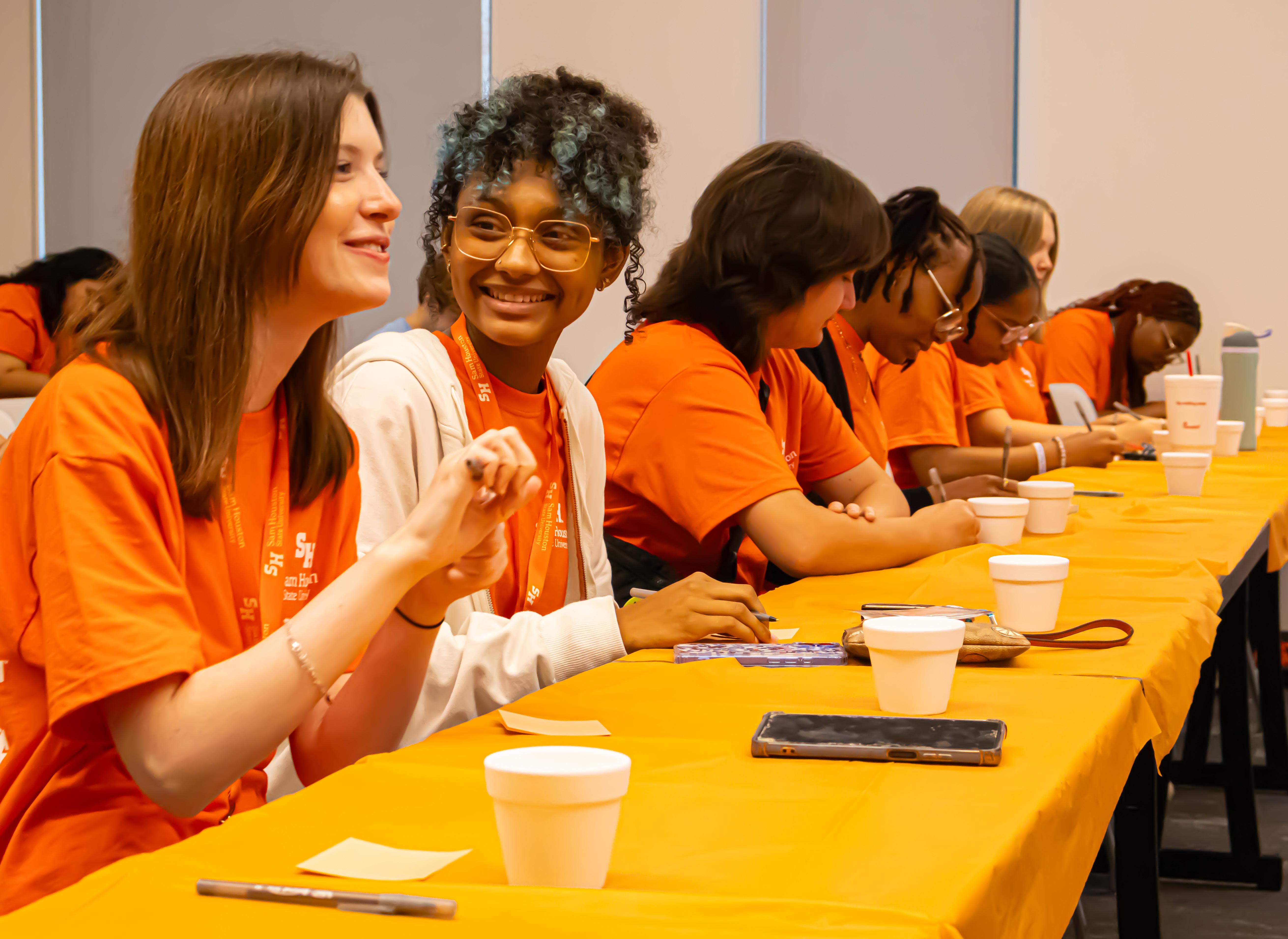
“Sam Houston took a chance on me,” she said. “I feel like I have an obligation to give back to the university that made me.”
This obligation, coupled with a habit of challenging herself to try something new, led her to respond to a social media post from Visitor Services seeking applicants to lead the summer’s New Student Orientation sessions.
“A lot of college students, especially the large at-risk population coming to Sam, benefit tremendously from an orientation leader who looks like them and reminds them of themselves,” Rodriguez said. “I am so grateful to have the opportunity to assist others the same way others assisted me.”
She was not immediately sure if this was the role for her. After all, orientation leaders are typically characterized as loud, outgoing and boisterous, often from the crack of dawn to the dead of night. While Rodriguez had worked hard on being as forthcoming as possible to thrive at Sam, she simply did not see herself as this particular brand of extravert.
“Before I knew it, I was participating in 9 a.m. dance parties at Starbucks,” she said. “It all comes out of you when you are in that environment and meet these students who are nervous, but you know they will be just fine, because they chose a school that cares about them. It’s okay to be a little
obnoxious if it helps someone out.”
Rodriguez and her fellow orientation leaders participated in 17 sessions throughout the summer for various sets of incoming students, but their work began much earlier. After they were hired in late March, leaders were tasked with learning everything about the university from its history and layout to differing degree programs and meal plans, all before sessions began in May. Each had to be prepared for any possible question that could come their way from an incoming freshman or parent in a hectic environment, as well as what direction to point them in afterwards.
“Our team works hard to put the guest experience at the forefront of everything we do for orientation,” said Courtney Chastine, director of Visitor Services. “We constantly remind our staff that our incoming students and families are going through a major life transition by starting college, which often comes with excitement but also fear and anxiety.”
Chastine also emphasized how much work goes on behind the scenes in providing a smooth experience for new students.
“Of course they have to know about the university, but to be a successful orientation leader also requires a lot of knowledge about event management,” she said. “This role really builds their skills in interpersonal communication,
emotional intelligence, organization, flexibility and teamwork, which are all highly transferable skills for their next steps after SHSU.”
Leading up to the first orientation, leaders participate in an intensive training week that includes in-depth sessions and a barrage of critical information. On orientation day, each leader is required to report to the Lowman Student Center at 6:30 a.m., with check-in proceedings starting at 7:30.
In the days leading up to each orientation, the leaders participate in calling campaigns, individually contacting each parent or student scheduled to attend the upcoming session by phone. The personalized process includes an opportunity to answer questions in order to make attendees feel less overwhelmed by the experience.
Orientation day assignments vary by leader, with some acting as greeters to welcome students and their families; or floaters, who seek to assist anyone who may need a hand. Others, including Rodriguez, prepare welcome bags filled with pertinent information and merchandise for new Bearkats and their families.
Following an introduction ceremony in the LSC, students are broken into small groups based on the college they are joining. Each small group contains about 20 new students led by one orientation leader.
“That is when we are able to form those one-on-one connections and provide the guidance they are looking for,” Rodriguez said. “The main thing I tell them is to be kind to others. Some freshmen adopt a “too-cool-forschool” mentality and don’t want to participate in icebreakers. But you never know when you are going to talk to someone who will become your classmate, or even your best friend.”
In a new and unfamiliar setting, incoming students are always eager to pick Rodriguez’s brain for advice on how to adjust to the lifestyle. She pays forward the same pieces of advice that helped her thrive two years prior.
“Getting involved and joining an organization is the easiest way to find your community on campus,” she said. “Sam Houston State has over 250 orgs; chances are, you will find at least one that is right for you. If not, you can start your own.”
As a direct beneficiary of SHSU’s many pathways to student success, Rodriguez serves as the perfect ambassador for all the groundbreaking opportunities offered to every Bearkat.
“If you see an opportunity that you want, go for it,” she said. “Make sure that you are aware of all the possibilities available to you. Learn about that internship, research or study abroad opportunity. Take advantage of everything you can, because all of this and more is possible here at Sam.”
During her last session in August, Rodriguez and her orientation family felt a bittersweet sense of finality amidst a sea of new beginnings.
“This job has certainly shaped me and the way I interact with people. It instilled a newfound confidence in myself and my abilities,” she said. “I now hold myself to a higher standard, not only as an orientation leader, but as a student and person.”
As she embarks on her junior year at Sam Houston State, Rodriguez is eager to continue finding ways to cultivate relationships with her classmates and professors as she edges closer to a degree in political science. And as a member of the McNair Scholars Program, she is engaged in defining her goals in research and further opportunities in higher education, including a master’s degree or more.
“I want to attend graduate school to study legislative affairs or politics,” she said. “My end goal is to become an immigration attorney and keep serving others.”
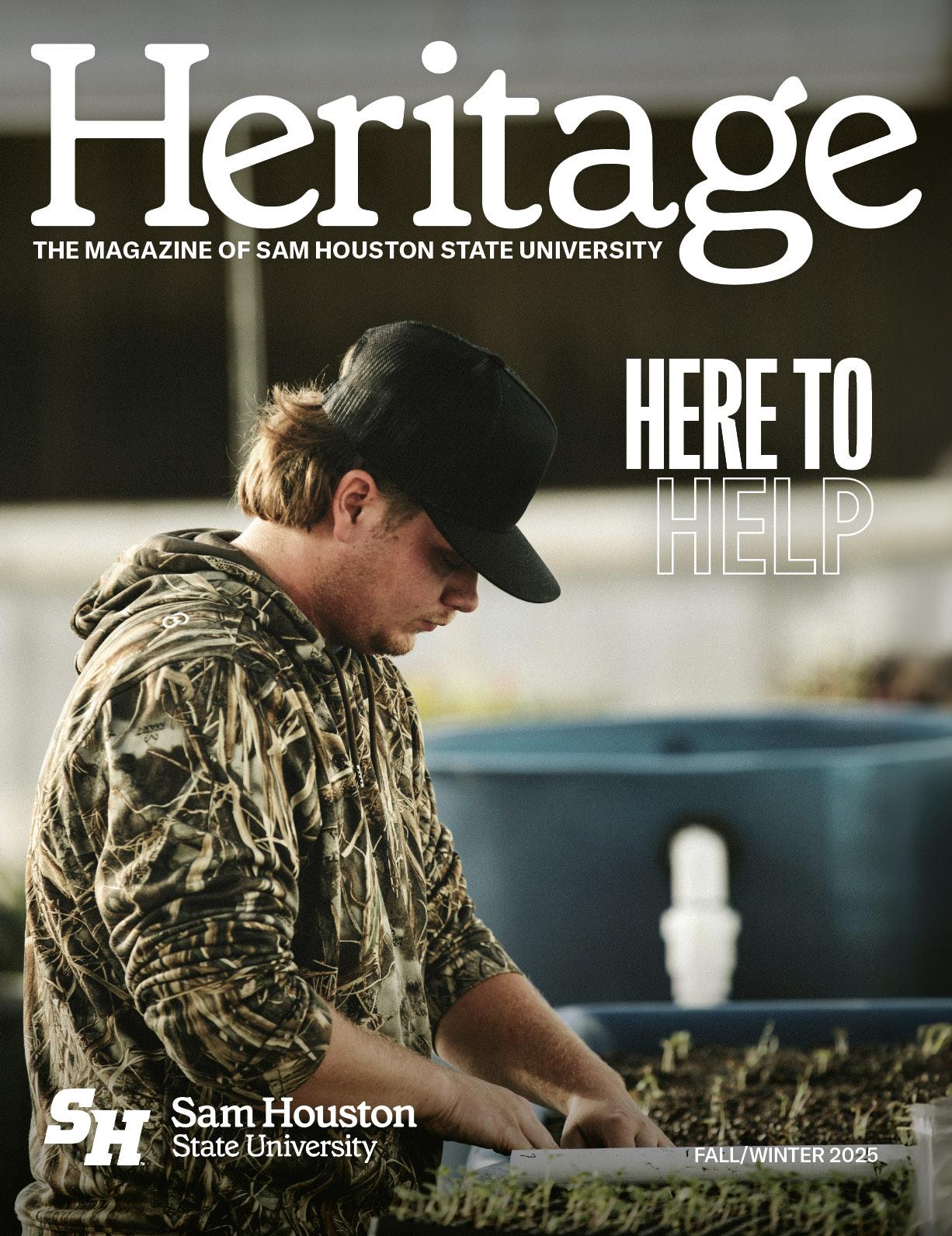
On the cover:
A new partnership is cultivating the next generation of agricultural educators through hands-on learning and leadership development. More on page 30.
Through our enhanced digital version of Heritage, designed to complement our print version, you will find even more information and interactive features, such as videos and web links to keep you up to date on university news and your gifts at work.
Available at: shsu.edu/heritage
Graduate school is more than a series of advanced courses; it’s a demanding journey that thrives on a supportive community.
At Sam Houston State University, the Graduate & Professional School (TGPS) is ensuring that journey is both accessible and rewarding. Through programs that combine academic guidance, career preparation and peer connection, TGPS is helping students thrive, and the results are showing.
This culture of success has helped make SHSU an increasingly attractive destination for professionals who want to know their investment will lead to meaningful growth and opportunity. In Fall 2025, graduate applications surged 9.1 percent, the highest in four years, while registrations climbed 4.5 percent from the previous year. Master’s enrollment grew 5.5 percent and total graduate enrollment rose 5.3 percent.
“Mentorship is vital for graduate and professional students because it supports both academic success and career development,” said Falguni Mukherjee, associate dean for graduate student success. “For many, who are balancing careers, families and school, mentorship also provides emotional support and a sense of belonging.”
One signature initiative, the Road to PhD Graduate Scholars Program, pairs doctoral scholars with dedicated faculty mentors who provide guidance throughout the year. Second-year students also serve as peer mentors to first-year scholars, ensuring a layered support system that encourages both accountability and leadership.
“These relationships are flexible but intentional,” Mukherjee said. “We
encourage regular check-ins, goal setting and reflection, which makes the experience meaningful for both students and faculty.”
In addition to mentorship, TGPS provides academic support through seminars, workshops and writing accountability groups. Graduate writing study sessions and the popular Thesis and Dissertation Boot Camps give students structured time, feedback and a community of peers working toward similar milestones.
The TGPS Seminar Series, hosted every few weeks, introduces topics ranging from academic writing and research strategies to leadership development and emerging tools like artificial intelligence. Specialized Doctoral Career Seminars help teaching-focused doctoral students navigate classroom management, policy and instructional challenges.
On the career side, TGPS offers resume reviews, LinkedIn consultations and mock interviews with faculty, alumni and career professionals. Graduate students also receive free access to curated LinkedIn Learning courses to strengthen technical and professional skills.
“Our goal is to help students prepare for both academic and nonacademic career paths,” Mukherjee said. “We want graduates to be confident, competent and ready to lead in their chosen fields.”
Graduate school can be isolating, but SHSU combats that with programs designed to build community. Writing accountability groups, peer mentorship and Boot Camps foster shared

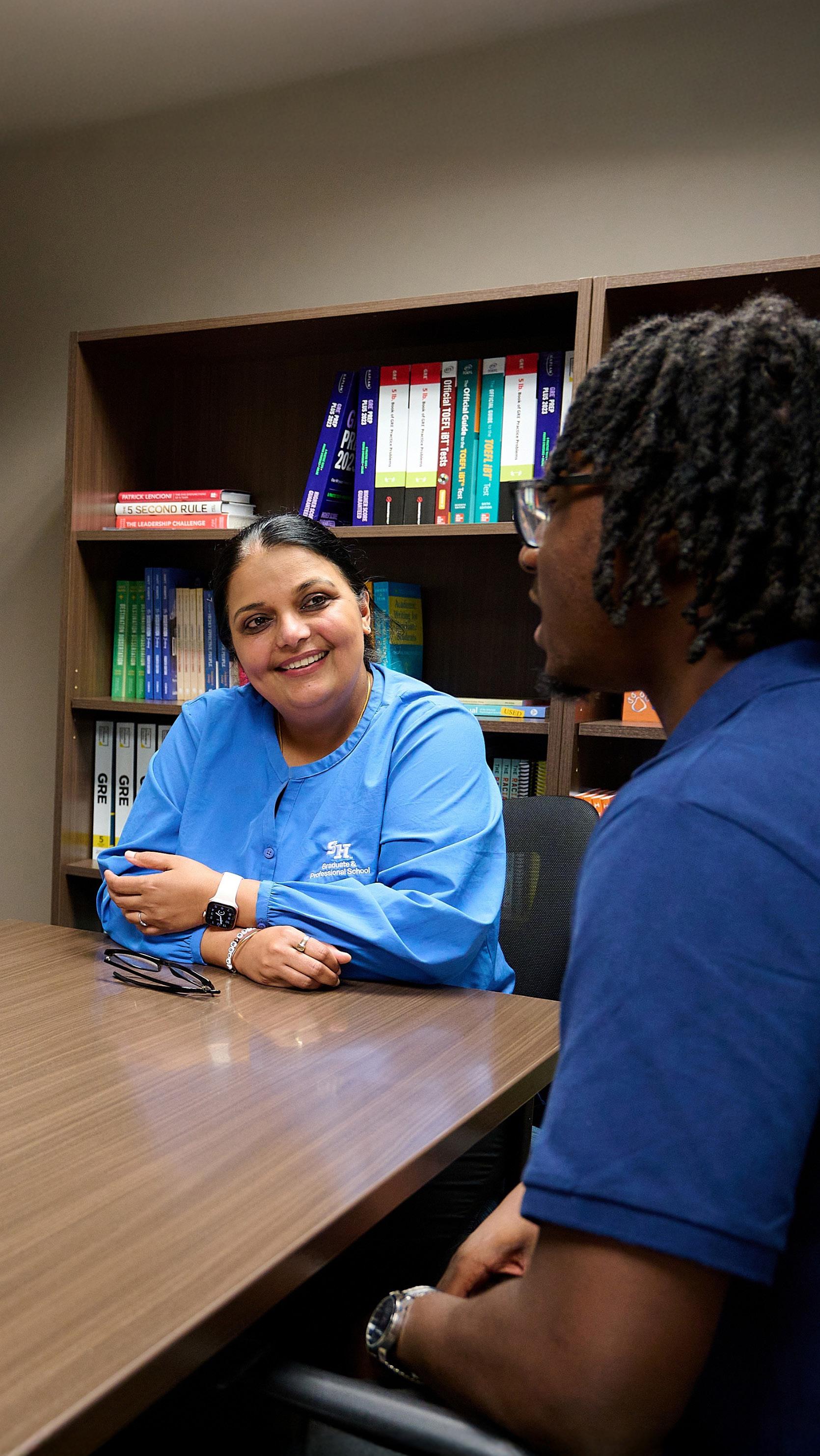
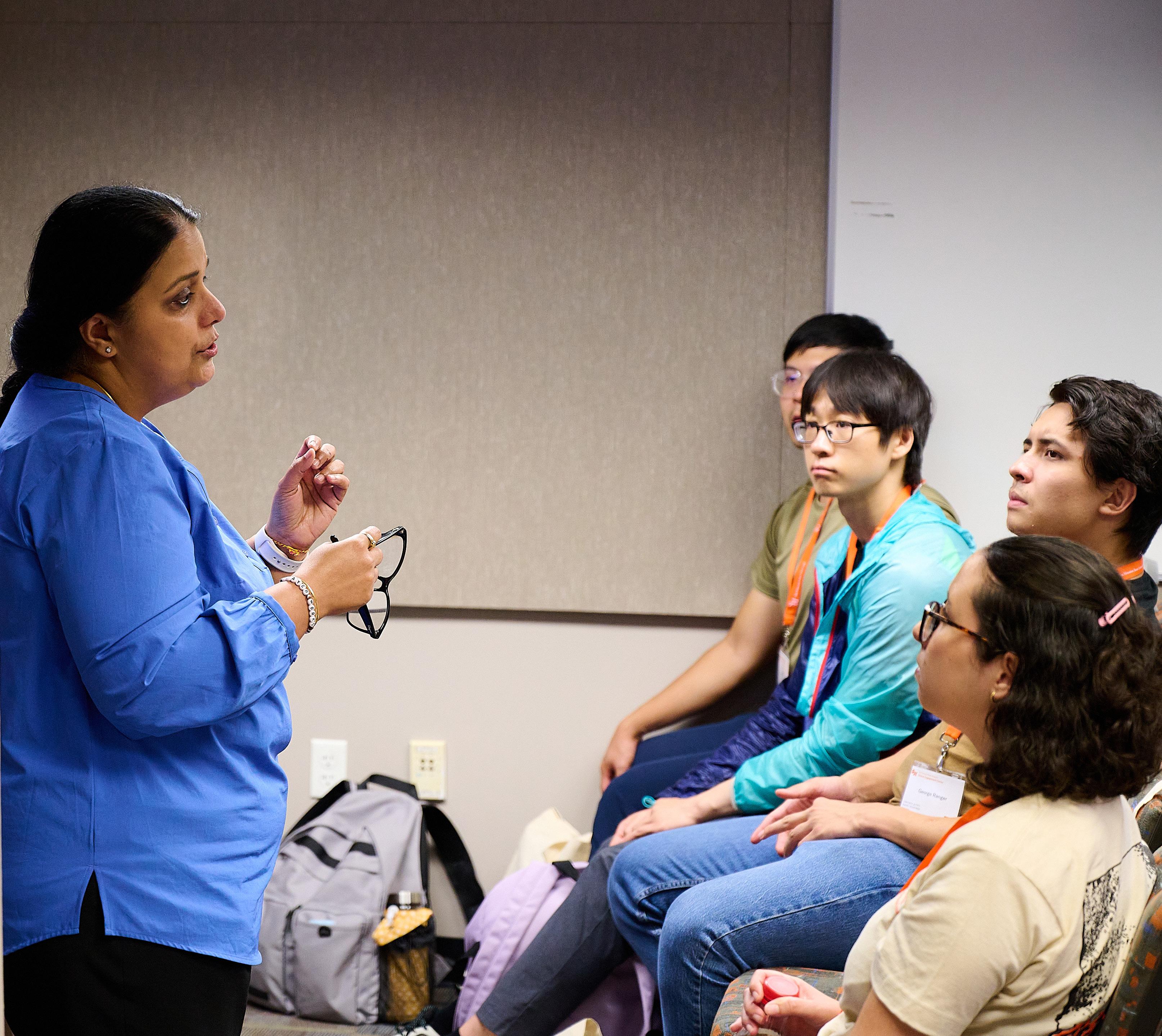
experiences. Annual traditions like Graduate Student Appreciation Week celebrate student contributions, while New Graduate Student Orientation and Welcome Week provide incoming students with tools, resources and peer connections from day one.
“These initiatives remind students that they are not alone,” Mukherjee said. “They are part of a larger, supportive community.”
TGPS is continuing to expand its resources and partnerships. The Texas Leadership Research Scholars Program is a statewide initiative that supports high-achieving doctoral students through scholarships, mentoring and leadership development.
A new Toastmasters chapter on campus is giving graduate students a space to build communication and leadership skills, preparing them for presentations, interviews and realworld leadership roles.
Additionally, SHSU’s STEM Center, backed by a $1 million National Science Foundation grant, is partnering with TGPS to improve STEM graduate student success by addressing challenges and career planning.
For Mukherjee, the philosophy is simple: graduate education is about more than degrees, it’s about people.
“At SHSU, we support advanced learners with a holistic approach that goes beyond coursework,” she said. “Through mentorship, academic support and professional development, we help graduate students succeed academically, grow personally and make meaningful contributions to their fields and communities.”
When it comes to financial advice, Student Money Management (SMM) at Sam Houston State University is here to help. During its founding year in 2007, the concept of college financial literacy programs was still new, so much so that SHSU was among the first of its kind.
What started off as basic financial education and awareness, like most financial literacy programs, soon became a much-needed service as the center went from seeing two or three students a semester to thousands. By 2020, SMM was well-known for its impact on the student body and the university, and America Alvarado has seen that impact first-hand.
Growing up, Alvarado's mother always pushed her to

pursue higher education so she knew wherever she wanted to go, her parents would make it happen. With her heart set on criminal justice, she looked for a university that shared her passion, leading her to SHSU. Aware of her family’s financial situation, when Alvarado and her mother visited campus for the first time, they made their way to Financial Aid & Scholarships and were referred to SMM.
“One of the program coordinators did a breakdown all the costs and we were able to see that visually,” Alvarado said. “We were also able to implement the calculated aid that I could potentially get. That's how I was first introduced to financial aid and financial literacy, and that’s the reason I'm here.”
Having the ability to understand and use financial skills,
such as budgeting and how to save, affected Alvarado's academic and financial journey to becoming a Bearkat.
“The program coordinator taught me everything I needed to know with financial aid,” Alvarado said. “She gave me advice for Scholarships4Kats and recommended me to the Freshman Leadership Program. Then, I was offered a student worker position in SMM.”
Alvarado started as a student worker in 2020 and when her undergraduate journey ended in 2023, she began working full-time for the center. In her first official job, Alvarado grew in her professional career while learning how to improve her financial situation. Now as a program coordinator, Alvarado has the chance to help other students facing similar financial issues.
“At first, I was a person in need, like every student that comes here, and I was guided in the right direction and given a lot of insightful information,” Alvarado said. “Whenever we see a lot of students or I get students that are in the same situation as I was five years ago, it makes me happy knowing that I can help them the way someone helped me.”
Ace Thomas, associate director of Financial Aid & Scholarships over SMM, was a first-generation student when he came to Sam Houston for his undergraduate degree. Like Alvarado, financial literacy became particularly important to Thomas, so he decided to pursue a business degree. SMM was still in its infancy, so Thomas didn’t know about the center, and found himself in a financial literacy class. He learned that, in general, people really don’t have a great understanding of how any of it works.
Since basic budgeting is a foundational financial literacy skill, according to Thomas, the top two points he and
Alvarado go over with students are understanding the cost of living once they transition off campus and the cost of attendance at the university. By the time the students reach out to SMM, it’s almost always reactive – something bad happened and now they need help – but Thomas sees that as a great learning opportunity.
“Most students said talking to us helped them in some way, which is what we strive to do in every interaction,” Thomas said. “We really like that students see the benefits, and we also like to see that we are making a very visible fiscal impact on them.”
Another challenge that Alvarado and Thomas see are students with past due balances. Recently, SMM was able to implement a payment plan program through the National Institute of Student Success (NISS) to help students pay down their past due payments, something Alvarado thinks sets SHSU apart from other institutions.
“Everybody has a financial problem at some point during their college journey,” Alvarado said. “To have the freedom to assist students is nice because we are helping them out now, but we also know that they’re going to be able to continue.”
The advice that SMM gives Bearkats is applicable inside and outside college. Thomas often tells students that even when it seems like all is lost, financial stability is always obtainable, it just takes time, work, planning and having an emergency fund. As for Alvarado, her biggest piece of advice is being intentional with your spending.
“You don't want your finances to control you, you want to control your finances,” Alvarado said. “Whether it's your school tuition, your employment or your allowance - whatever it is, have intent with it.”
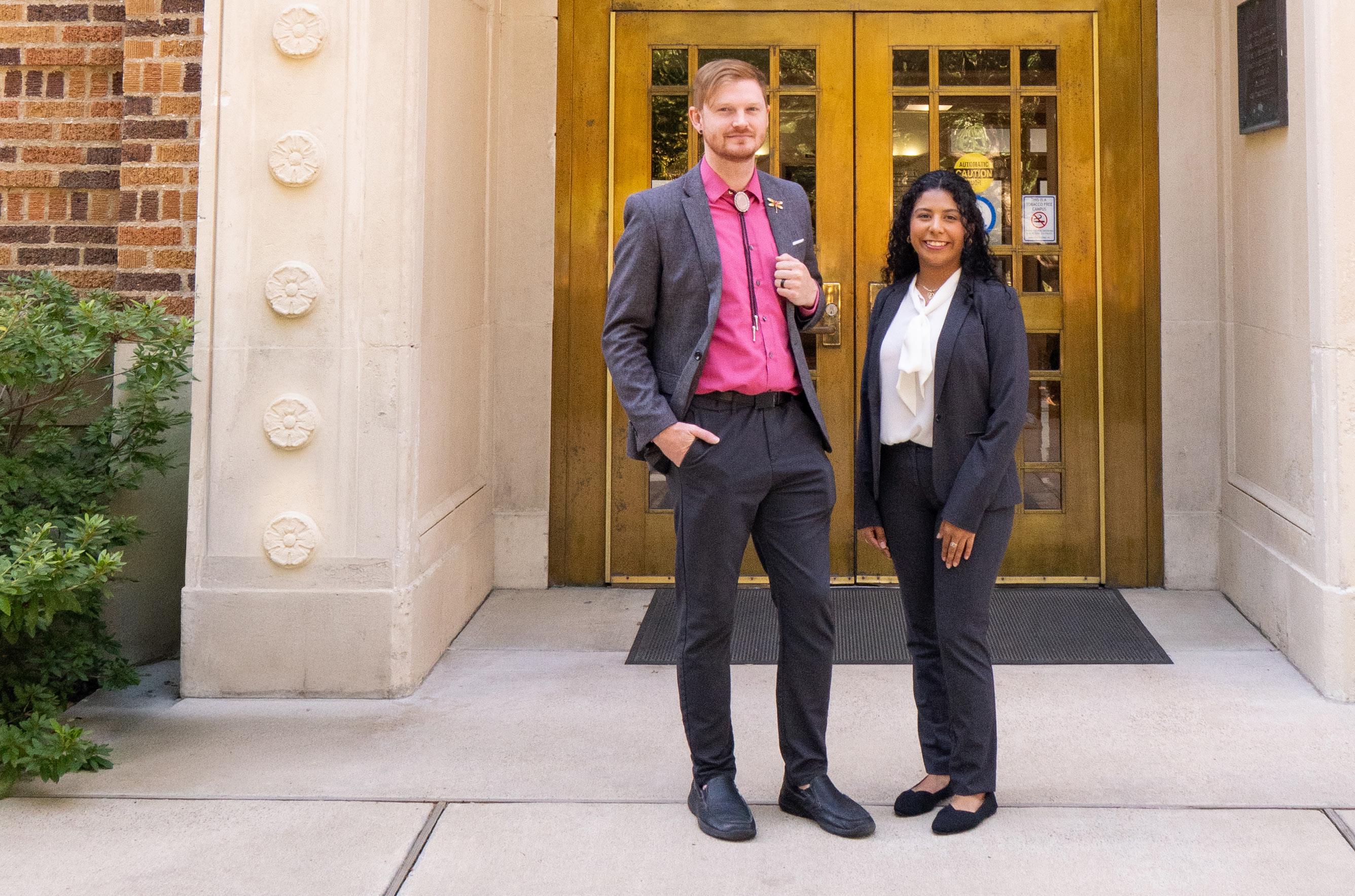
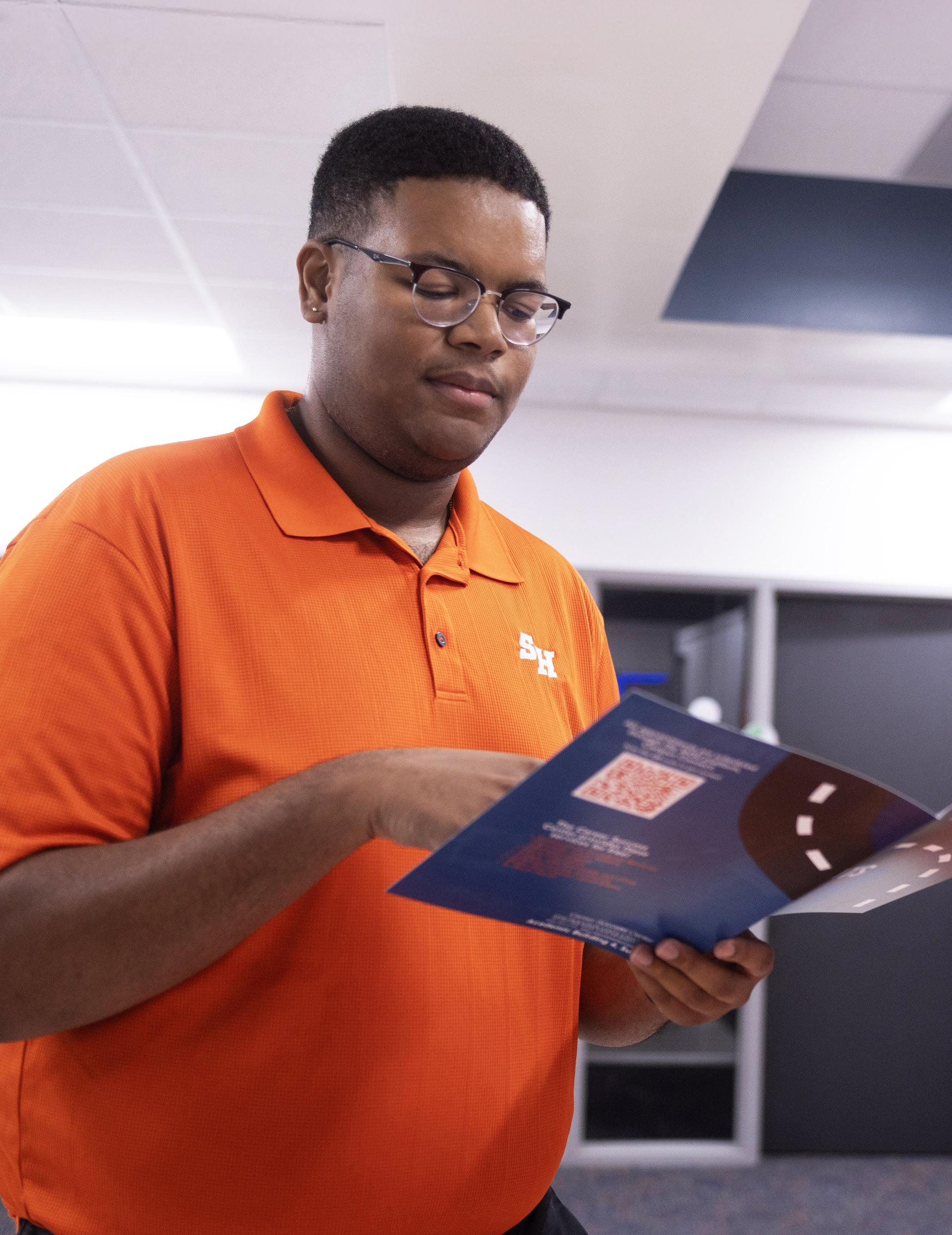
Sam Houston State University thrives on the principle that an institution is only as strong as its community.
This is evident through resources like the Career Success Center (CSC), where Bearkats remain agile and gain a professional leg up on the competition at any stage of their educational journey.
“We at Sam Houston State have put ourselves in the perfect position to show our students the value of a college degree,” said CSC Director Benjamin Cantú. “We are one piece of that, but there are so many vital resources aimed at making our students more successful.”
Cantú and his team are committed to preparing every student for the career of their choice, regardless of where they are in the process.
“Whether you are a freshman, a week out from graduation or you crossed the stage 10 years ago, our career services are free for life,” Cantú said. “The biggest thing is that all of our staff members are passionate about students and want to fulfill their career aspirations.”
Cantú himself hand selected the majority of the staff in 2022, when the center was officially established and he was named director. This included Courtney Wilson, associate director of career education and innovation, who helped launch the CSC’s initiatives and jumpstart the newly-formed center under Cantú’s leadership. The team has since grown in size and prestige, collaborating with the campus community to offer the best possible services to its clients.
Jason Spicer, one of many Bearkat success stories, earned his bachelor’s degree in mass communication in 2024. He went on to utilize the center as an alumnus and ultimately secure a position as an SHSU admissions counselor for the Central Texas and San Antonio area.
“Here at Sam, all you need to do is ask for help,” Spicer said. “There are so many resources that will assist you if you utilize them. People at this university are here to help you succeed, especially in the Career Success Center.”
After receiving his degree, Spicer struggled to secure
the position he desired. Luckily, he was aware that the CSC offered both current students and alumni services related to career development and readiness. He decided to schedule a mock interview to receive tangible feedback he could apply to his strategy.
“I was frustrated with the job search and knew I had to go above and beyond if I wanted different results, so I booked an appointment,” Spicer said. “The feedback I got from that mock interview was real and intended to make me grow. They did not sugarcoat anything, which was great because that experience helped me land a full-time position.”
Along with mock interviews and career coaches to guide you through the process, CSC services include resume critiques, free professional headshots, internship search assistance, part-time or full-time career search assistance, major and program career information. They also offer career development and educational workshops throughout the year.
“These events help students become more career-minded and allow them to level up when they graduate,” Spicer said. “Those resources can be critical to completing your journey here at Sam and putting yourself in the best position to succeed after.”
Since securing his first job after college, Spicer has immersed himself in a role that allows him to provide pathways to education for other first-generation students. Now, he is not only establishing himself as a young professional, but assisting future generations of Bearkats in his home region on behalf of his beloved alma mater.
“As an admissions counselor, I actively recruit students and walk them through everything from the FAFSA process to job applications,” he said. “I basically help students along their journey to success.”
For Spicer, it means more than just a career. The multifaceted position is a chance to give back to the university that always pushed him to rise to greater. Having navigated the challenges of such a nuanced space himself, he understands how daunting the process can be. That
experience fuels his deep appreciation for the professionals who help others chart their course, and it motivates him to thrive in that very role himself.
“Today, you need someone with relatable experience to look at your resume, or talk through your interview strategy and give you those critiques,” Spicer said. “Currently, there are a lot of job shortages in particular areas, so it is important to have that professional who has been in the industry.”
It also gives him a new appreciation for just how impactful services like the CSC and other SHSU staples can be.
“I don’t believe that other universities offer the same level of amazing support systems that we offer here at Sam Houston State,” he said. “The CSC, as well as countless other resources, are critical to your overall success beyond this university.”
Both Spicer and CSC staff emphasized the importance of utilizing their services early and often. With an accessible on-campus location and virtual appointments available to schedule through Campus Connect, all Bearkats are encouraged to take the next critical step toward their professional endeavors.
“We love repeat customers,” Cantú said. “We have seen so many success stories, like Jason’s, out of those who consistently use our assistance. We are here to help every step of the way for as many students as possible. That is what we are passionate about.”
The Career Success Center is located in Academic Building IV, Suite 210, and open to visitors Monday through Friday from 8 a.m. to 5 p.m. throughout the academic year.
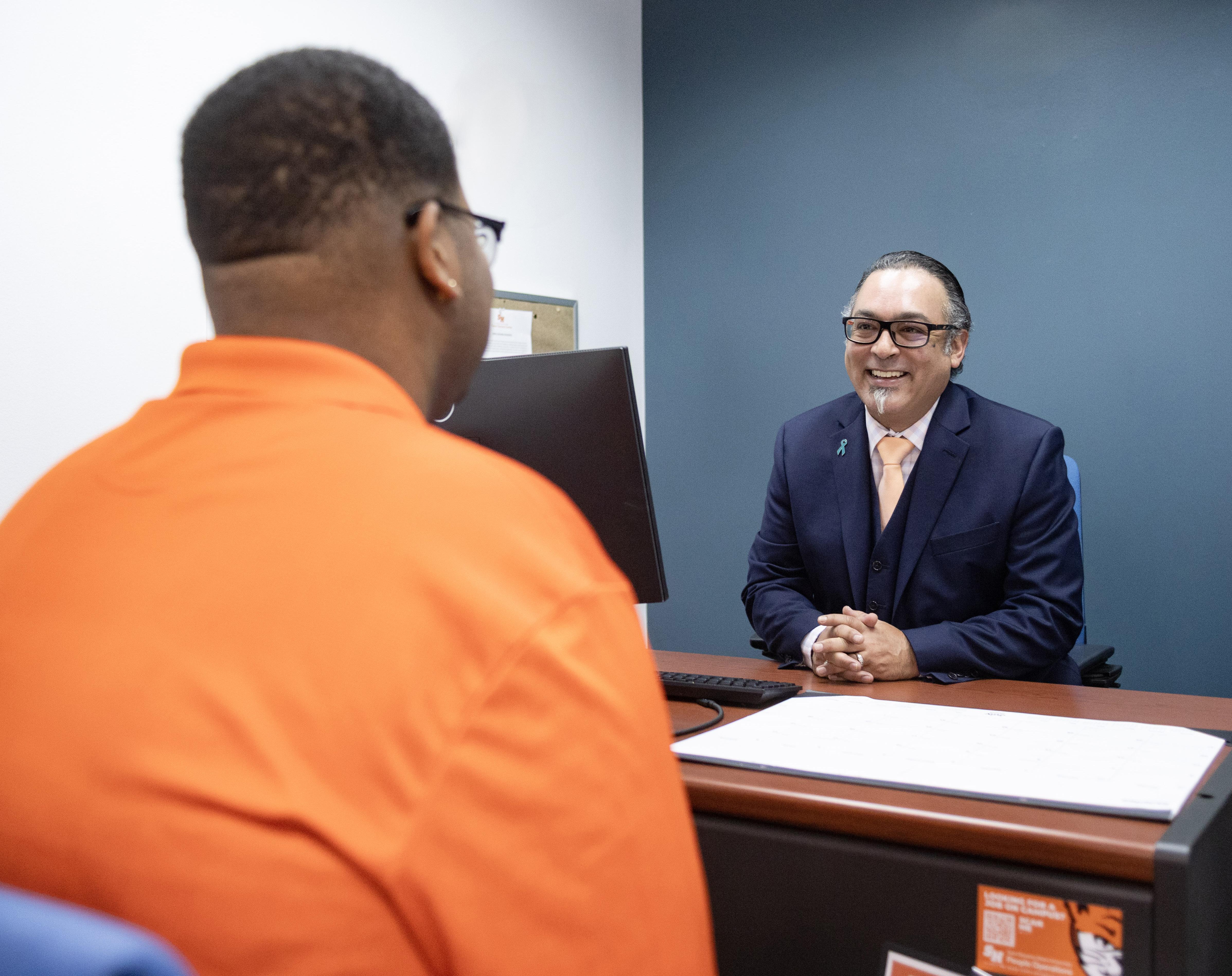


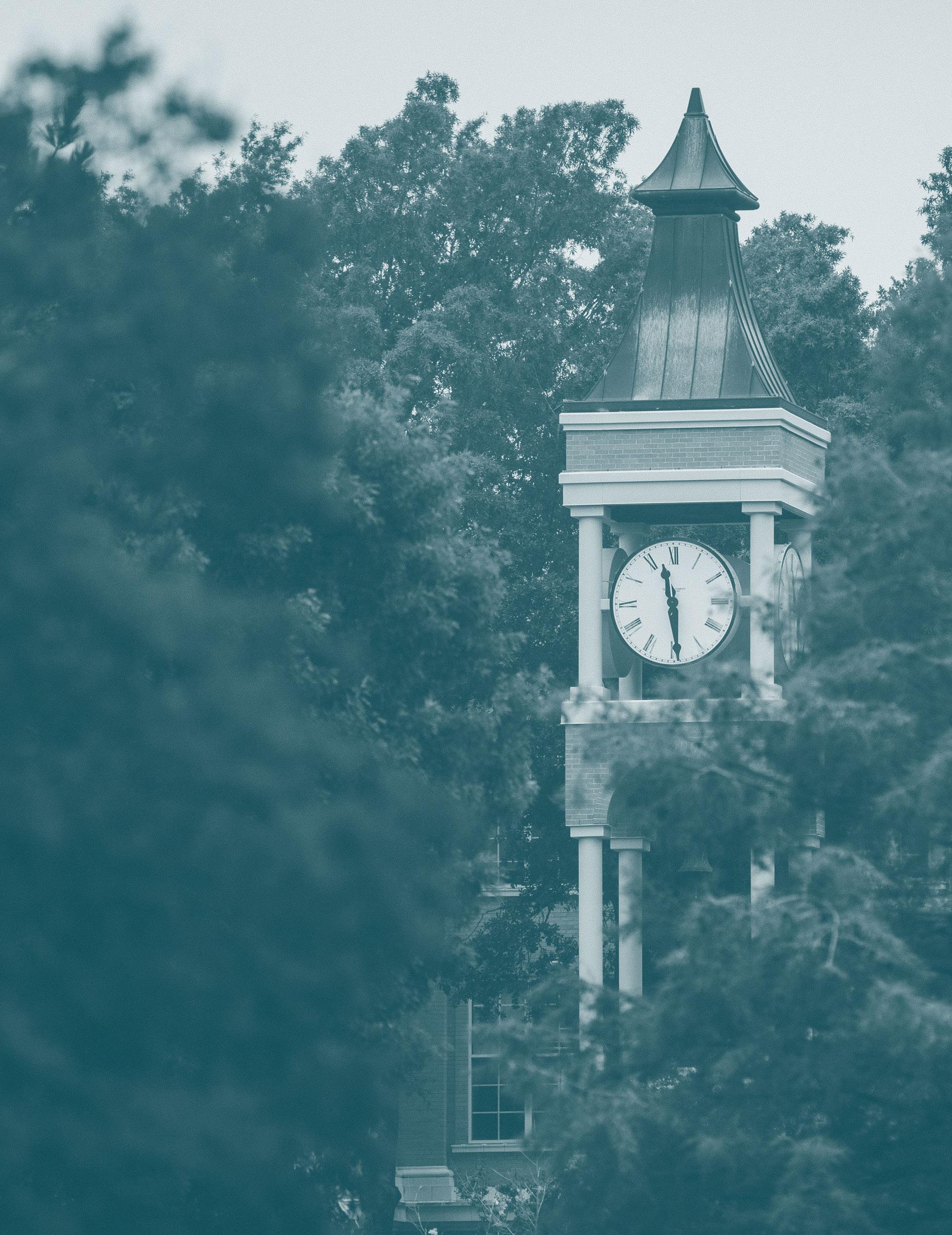
IN THIS SECTION:
From Local Roots to Lifelong Achievements
Small Business Big Impact
Planting the Seed of Healthy Eating
Growing Our Reach
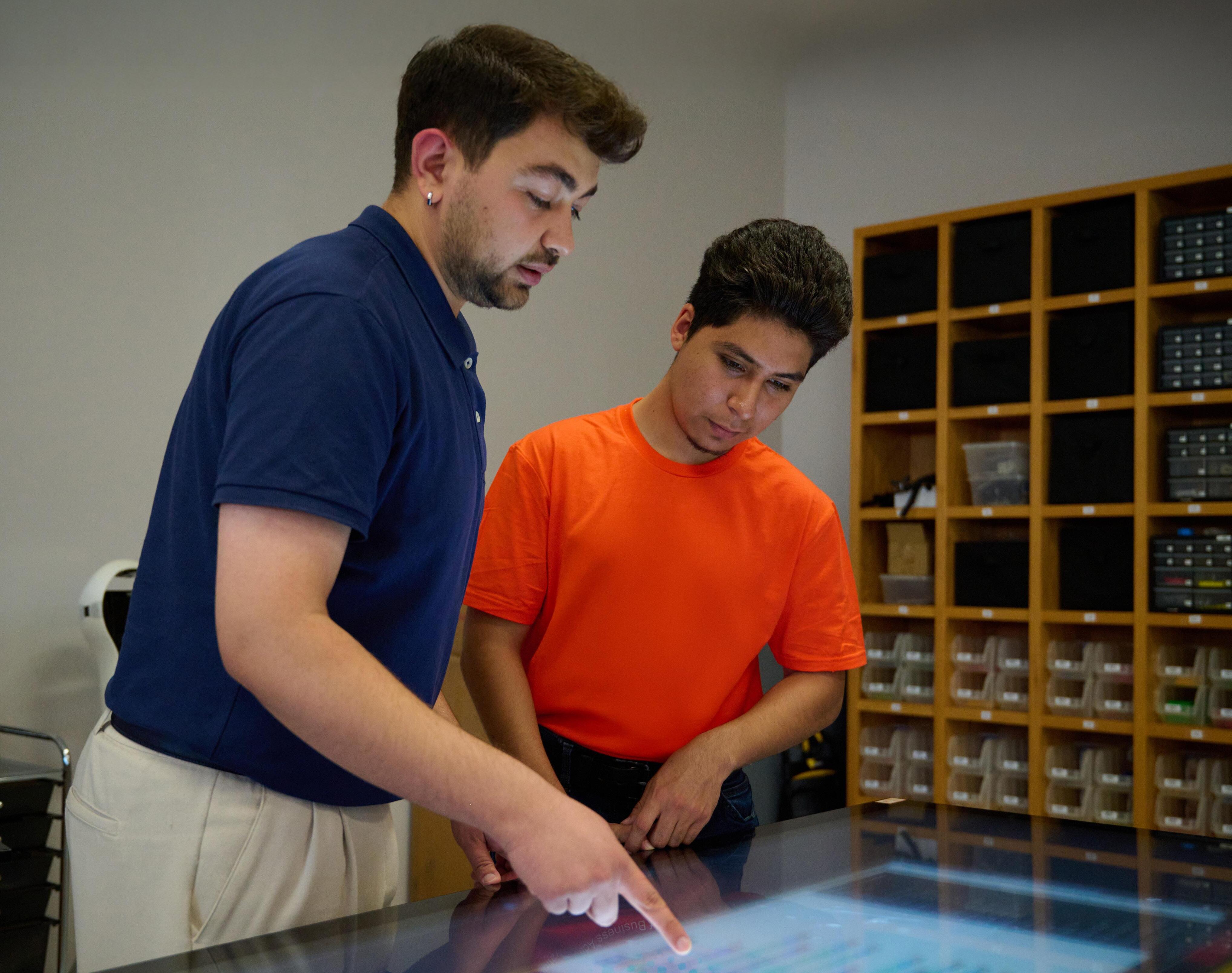
Sam Houston State University is reimagining the road to success by meeting local students where they are. Through dynamic collaborations with area school districts, the university creates clear pathways to higher education and the professional sphere while opening doors for the next generation of local learners. These elite partnerships continue to drive SHSU’s essential role in the community while serving the needs of the state and region at the highest level.
“We want Sam Houston State and the Huntsville community, along with surrounding areas, to thrive together,” said Pamela Zelbst, co-director of the Center for Innovation, Technology and Entrepreneurship (CITE).
As part of its exCITEd initiative, the CITE center in the College of Business Administration (COBA) enhanced a collaboration effort with area high schools to ensure its multifaceted student base has early access to critical skills and concepts. The effort has already certified
several students in project management, an industry-level certification that deems students college-ready.
“The certification is state-approved and provides students with a college credit if they ultimately attend SHSU,” Zelbst said. “Students at Huntsville High School participated in the initial program, which resulted in a 100 percent pass rate. The success has only grown to include other local districts, including Madisonville CISD and Trinity ISD, during the spring semester.”
Zelbst, CITE co-director Bob Milner and management professor Charles Mize worked tirelessly to design the courses on the educational technology platform Blackboard, with help from SHSU Online. The course lasts roughly six weeks, just a portion of a student’s semester.
The CITE center, known for its prestigious partnerships with organizations like NASA, also collaborated with Project Management Institute (PMI) Houston, which helped structure and offset the cost of the exams. Elwanda Bennett, vice president of professional development for PMI Houston, collaborated with CITE personnel to establish the unique opportunity for local students.
“These programs are vitally important because they create talent and innovation pipelines that our industries need,” Bennett said. “It shows them that anything is possible with a plan and a purpose. It builds resilience within the student, because they learn how to measure and understand risk while informing their decision-making.”
It’s also paving the way for future difference-makers like Jose Espinoza. The Huntsville native and 2025 Huntsville High School graduate participated in the NextGen PM program and earned the highest grade in his class on the certification exam. He is now a freshman at SHSU and a Smith Hutson Scholar pursuing his bachelor’s degree in accounting.
“This program gave me a head start to college,” Espinoza said. “It also brought me a new focus. I am now interested in possibly pursuing a double-major and ultimately my master’s degree in project management.”
she can. Espinoza, meanwhile, already has a leg up on his aspirations as he settles into Bearkat life. In his first semester, he has expressed his admiration for the campus and its welcoming atmosphere.
“So far, I love the environment we have here. I am looking forward to learning everything about the business world and professional life,” Espinoza said. “My suggestion to high schoolers who are in my position is to go for it; attempt everything. It is better to shoot for everything that you can than to live with regret.”
During the process, students are provided with information to assist them in their aspirations beyond high school. This includes routes to traditional higher education models as well as SHSU’s innovative polytechnic college, SamPoly.
The CITE center, meanwhile, continues its mission to blend Sam Houston State’s unique prestige with the strong community it inhabits. Zelbst and her staff are currently working on another certification for local high school students focused on small business and entrepreneurship.
“We are going to give students in our project management programs real life experience by helping them develop business ideas,” Zelbst said. “It is very exciting to have that next step in place. We don’t want to be one and done; we always want to look to what’s next.”
Within the university itself, the model is beginning to
"My suggestion to high schoolers who are in my position is to go for it; attempt everything. It is better to shoot for everything that you can than to live with regret."
Espinoza credits his former teacher at Huntsville, Denise Carpenter, with encouraging him to pursue the program. Carpenter, a former Bearkat who recently retired from her position after 25 years of service, was involved with the CITE center from the early stages of the collaboration and strongly encouraged her students to take advantage of the unique opportunity.
“I really think introducing high school students to this is the perfect fit, because it will help them no matter what profession they go into,” Carpenter said. “You can still use these skills they are learning and apply them to everyday life. I know the project is expanding to other schools, and I encourage all of them to try it.”
Carpenter is so passionate about the program that she has remained involved after retirement in any capacity
Jose Espinoza SHSU Freshman
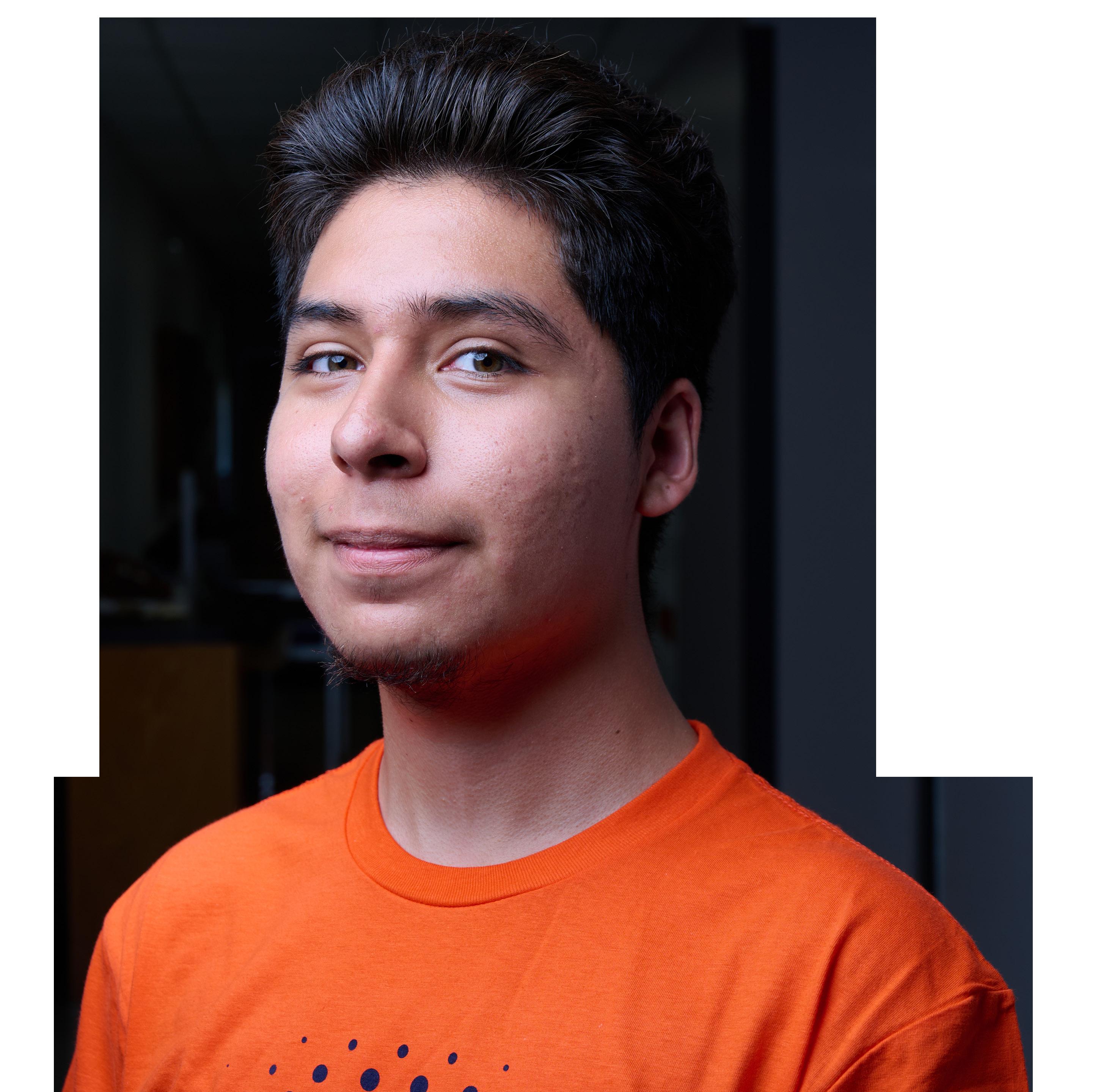
spread to other departments in COBA and other colleges on campus, with multiple educators expressing an interest in bringing relevant certifications to their potential students.
Through groundbreaking initiatives, Sam Houston State University is proving that higher education can be both forward-thinking and community driven. At its heart, the work is about more than degrees or certifications, but empowering the next generation to dream bigger, achieve more and give back to the place they call home. By lifting students and strengthening the community, Bearkats are building a future where everyone rises together.
For Brian and Jennifer Kempton, the owners of Willis Urgent Care, opening their own clinic wasn’t just a business decision, it was the realization of a lifelong dream. With Brian’s three decades of experience as a boardcertified emergency physician and Jennifer’s background as a teacher and school counselor, the Kemptons shared a vision of bringing expert, compassionate medical care to Willis, Texas.
Like many entrepreneurs, they discovered that building a successful business requires more than expertise in their chosen profession, it also takes sound business strategy, financial guidance and marketing know-how. That’s where the Sam Houston State University Small Business Development Center (SHSU SBDC) stepped in.
The SHSU SBDC, part of the Texas Gulf Coast SBDC Network, provides no-cost, confidential business advising and training to small business owners and aspiring entrepreneurs in Walker and Montgomery counties. For the Kemptons, the center became a trusted partner, offering resources that made the difference between a daunting process and a manageable path to success.

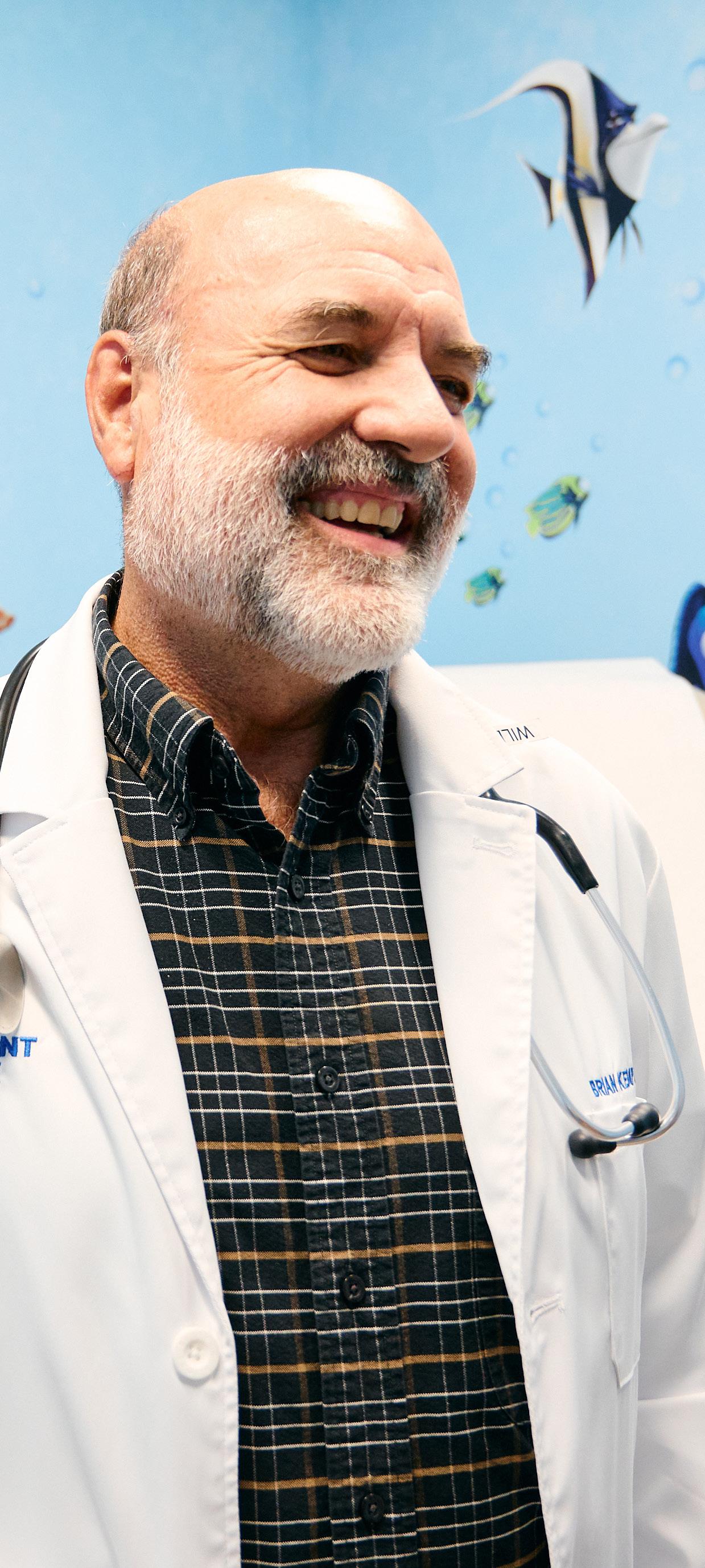
“Before we opened, I took a class on QuickBooks at SBDC and learned valuable skills that taught me bookkeeping and how to manage payroll,” Jennifer said. “SBDC also helped immensely in marketing advice and provided an expert in web design who gave great tips on our web page and marketing.”
Beyond training, the SBDC’s advising team went a step further, guiding the couple through critical financial challenges.
“At one point we were having trouble with our bank loan and the center director worked hard in getting us in contact with the right people to help us secure a better loan,” she said.
Opening during the height of the pandemic presented unique challenges. Many small businesses were struggling to stay afloat, but the SHSU SBDC remained a steady source of guidance. The Kemptons’ advisor checked in regularly, offering updates on loan forgiveness programs, marketing strategies and employee retention resources. That hands-on support gave the clinic stability during an uncertain time.
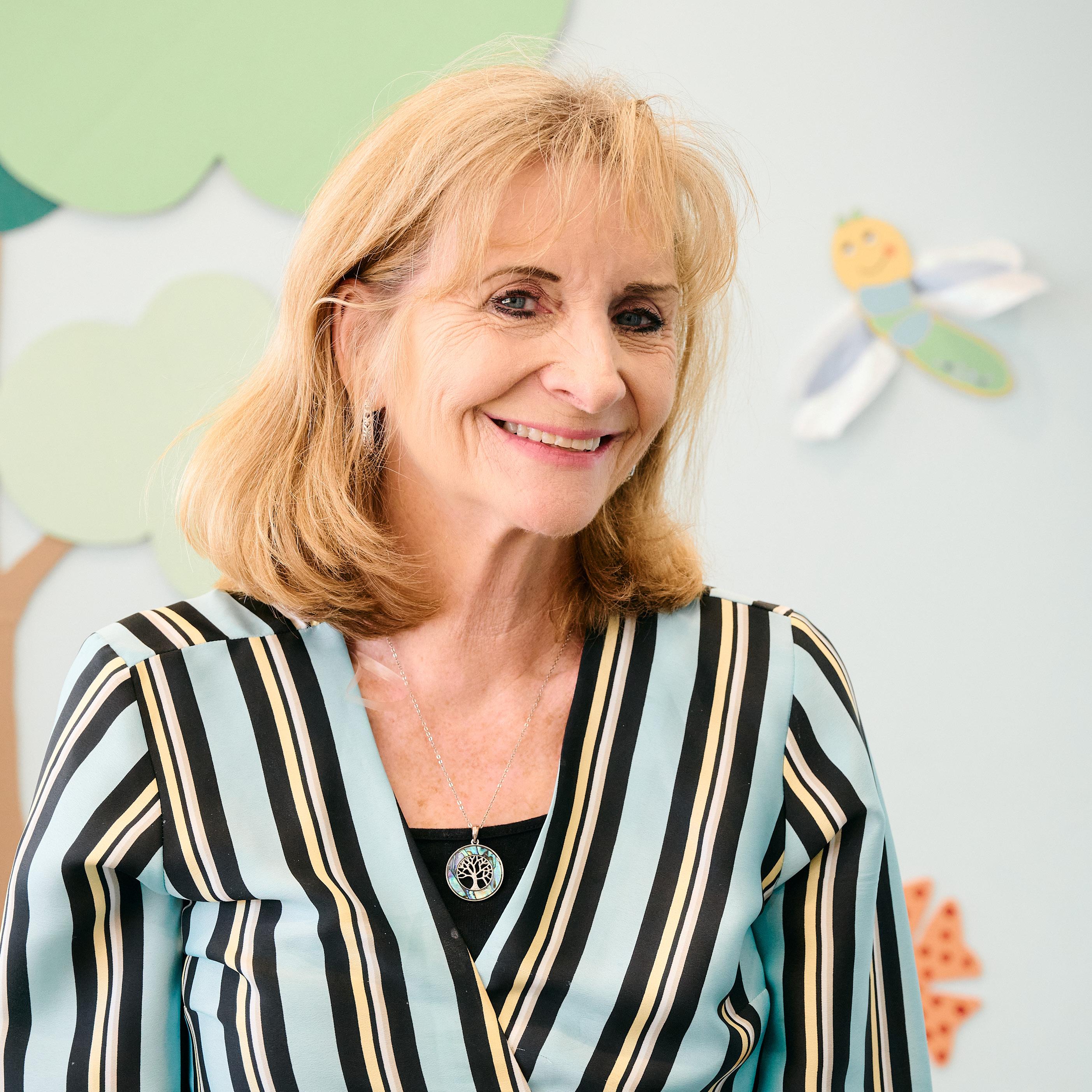
"Thankfully, we are approaching our fifth year as small business owners, and have now opened a second clinic in Conroe. We could not have made it without the guidance of the SHSU SBDC."
- Jennifer Kempton
“Willis Urgent Care is profoundly grateful to the center for helping us make our dream come true.”
The Kemptons’ story is just one example of how the SHSU SBDC empowers local entrepreneurs to turn their dreams into thriving businesses. By offering training, personalized advice and connections to vital resources, the center is strengthening the fabric of the regional economy; one small business at a time.
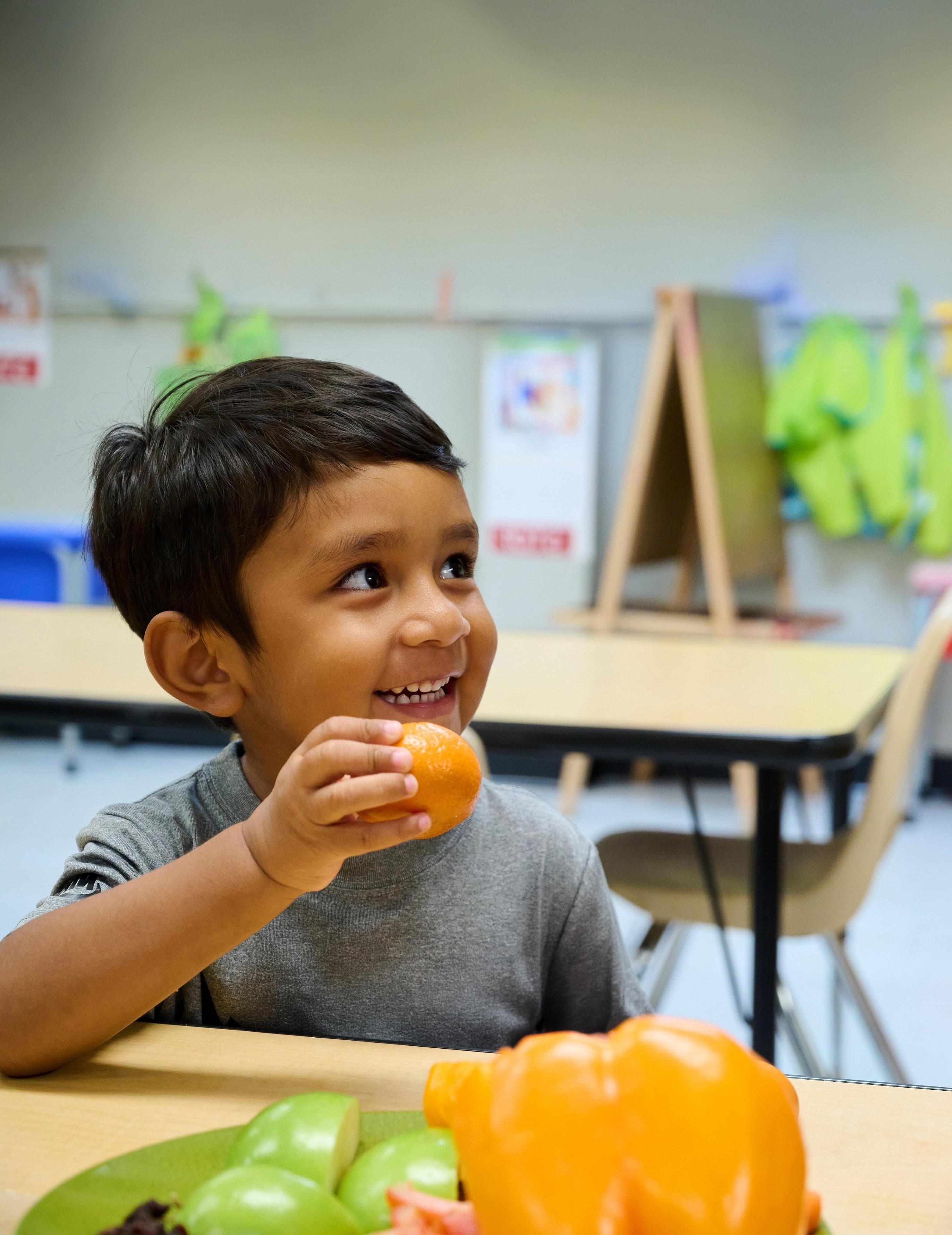
Any parent knows that getting a child to eat their fruits and vegetables can seem like a losing battle, but for participants in the Walker County Head Start Program, that struggle may soon be a thing of the past. Sam Houston State University’s Tabbetha Lopez and Linda Fergus are engaging in a unique partnership through two Academic Community Engagement (ACE) courses to provide meal kits, expose children to various vegetables and conduct wellness checks for the program’s parents and students.
Lopez serves as the director of the Graduate Program in Dietetics, including the dietetic internship program and an assistant professor within the Department of Human Sciences, while Fergus directs the department’s didactic program in food science and nutrition and leads courses of her own as an assistant professor. The two have worked closely in the past, often collaborating on projects where the dietetic interns provide nutritional direction to community members while the students conduct wellness exams.
“This year, we’re going to be helping out with the Head Start project, where we’ll be trying to get the children to eat more fruits and vegetables,” Fergus said. “We’ll have a few opportunities where they’re not just encountering the food on their plate, but being exposed to it, touching it, smelling it, doing activities with it, all to try and get them more familiar with it.”
Fergus and Lopez were inspired to engage in this partnership after their colleague Kathleen Gilbert, director of the SHSU Food Pantry, relayed community members’ struggles to incorporate vegetables like radishes into dishes. On top of not knowing how to cook them, the parents did not know how they could present the new vegetable to their child without noses being upturned.
To have food available to assemble meal kits, the collaborative effort is receiving support from the Powell Foundation as part of a $100,000 grant presented to the SHSU Food Pantry. The donation was made in 2024 in support of the shared mission between the SHSU Food Pantry and the Powell Foundation to fight food insecurity, improve health outcomes and promote health equity in the Greater Houston region.
“For eight weeks, we’ll be providing nutrition education for parents,” Lopez said. “Those that attend the education sessions will get to go home with a meal kit for their family’s dinner that night. It will have a recipe, and all the ingredients included. It’ll have all the fruits and vegetables that Linda’s students introduced to the children that week.”
"More often than not, dietitians will work with someone who is grappling with financial and nutritional insecurities, so getting to practice and find ways to work around their situation and circumstances is great for aspiring dietitians."
Natalee Acosta Graduate student & dietetic intern
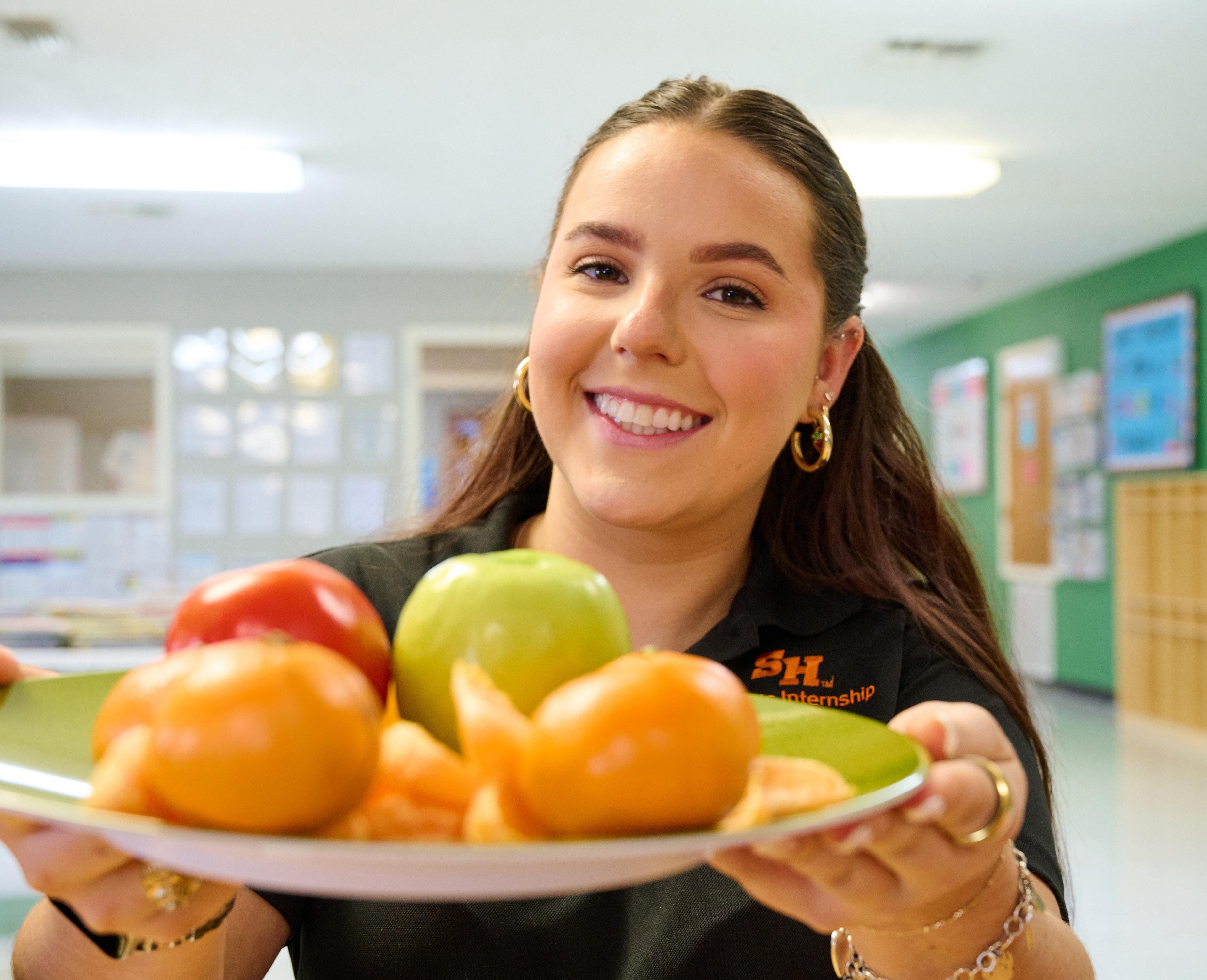
The team’s mission is multi-layered. Through the nutrition education sessions, they aim to teach parents the importance of starting children on the right foot with healthy eating habits. They also aim to improve the health of the parents within the program, and by providing printed recipes
complete with ingredient lists, they can learn to make a new meal and keep the instructions handy. Exposing the children to the fruits and vegetables in an environment that allows them to push the food around the plate will help them build positive experiences around the food.
All of this will be executed by the graduate and seniorlevel undergraduate students studying under Lopez and Fergus. Their participation adds yet another layer to the duo’s mission, encouraging students to engage with their community. For the Dietetic Interns, this serves as real-time training for their futures as registered dietitians.
“Depending on what path they choose, they’ll work with groups of people to help increase their healthy eating behaviors, and it takes a lot of skill to do that,” Lopez said. “You have to know nutrition education, but that’s also going to be kind of fluid when we get in there. Even though we’ve developed these lessons, they will have to answer questions, adjust on the fly and tailor the information to the population.”
Fergus expects to see similar learning experiences unfold for her students.
“They’ll practice their assessment and decision-making skills, and all of those things cross over to healthcare,” she said. “If they want to be a pediatric dietitian one day, if they just want to work in the hospital with adults one day, then they’ll be ahead of the game having experienced this.”
While this is their first partnership with Head Start of Walker County, the two have offered ACE courses before,
and their current and former students serve as living proof that these collaborative endeavors enhance the learning experience. Natalee Acosta, a graduate student and dietetic intern, is one such student. Acosta began her academic journey at SHSU as a business major before getting into health and wellness during the COVID-19 pandemic.
As this passion grew, she changed her major to dietetics to pursue a career as a pediatric dietitian. Now, she is ready to get a taste of her future career through the partnership with Walker County Head Start.
“This program exposes young dietitians and dietetic interns to the different types of communities they may serve,” Acosta said. “More often than not, dietitians will work with someone who is grappling with financial and nutritional insecurities, so getting to practice and find ways to work around their situation and circumstances is great for aspiring dietitians.”
Acosta will be one of the students presenting children in the Head Start Program with fruits and vegetables to try, taking on the challenge of making them appealing to youngsters. Together, they’re proving that community connections can plant the seeds of lasting change.
“This is our first Head Start collaboration, and I hope that we can expand this partnership beyond Walker County to some of the counties around us, because I think this is going to be great for the community and everyone participating,” she said.
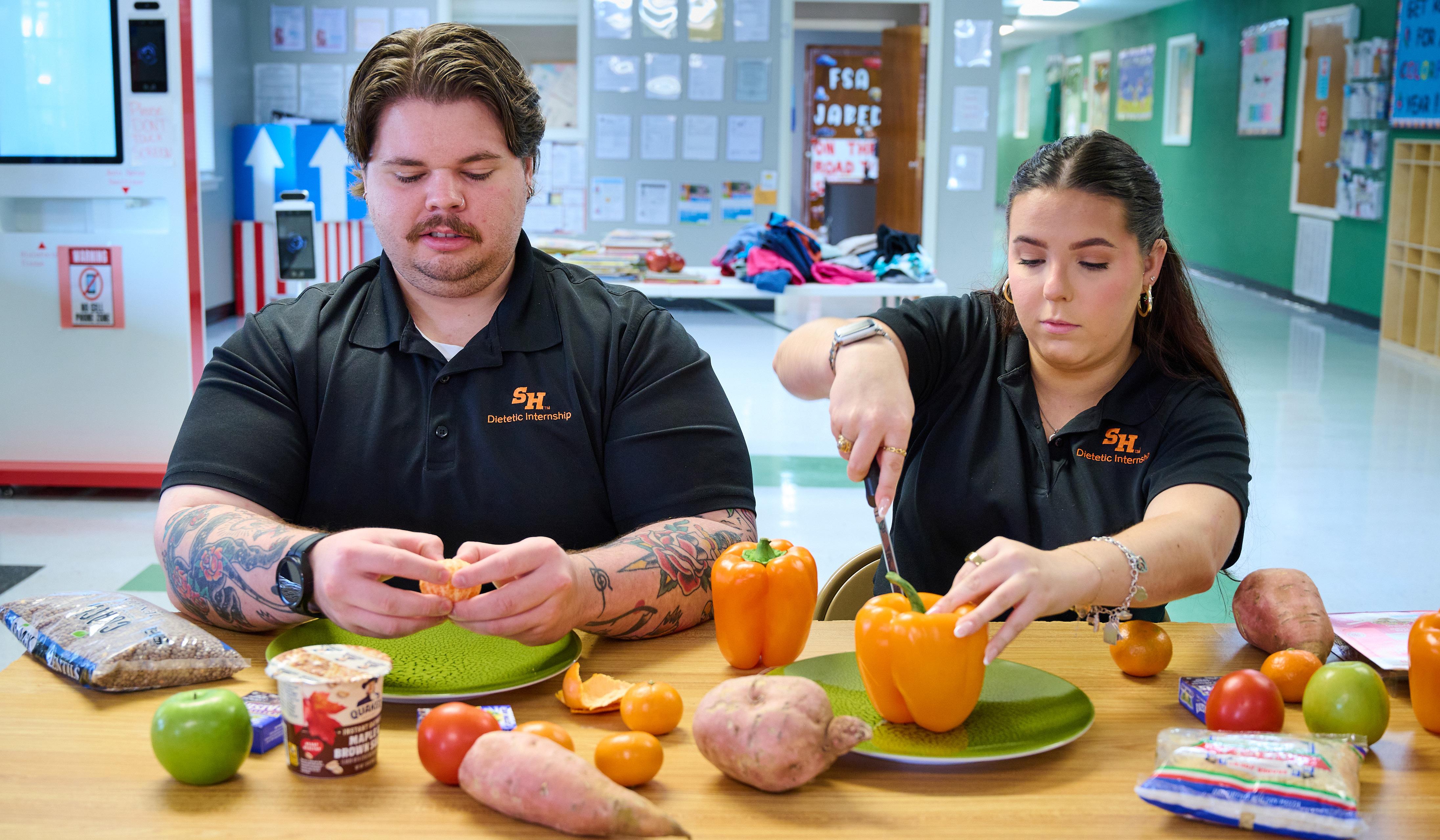
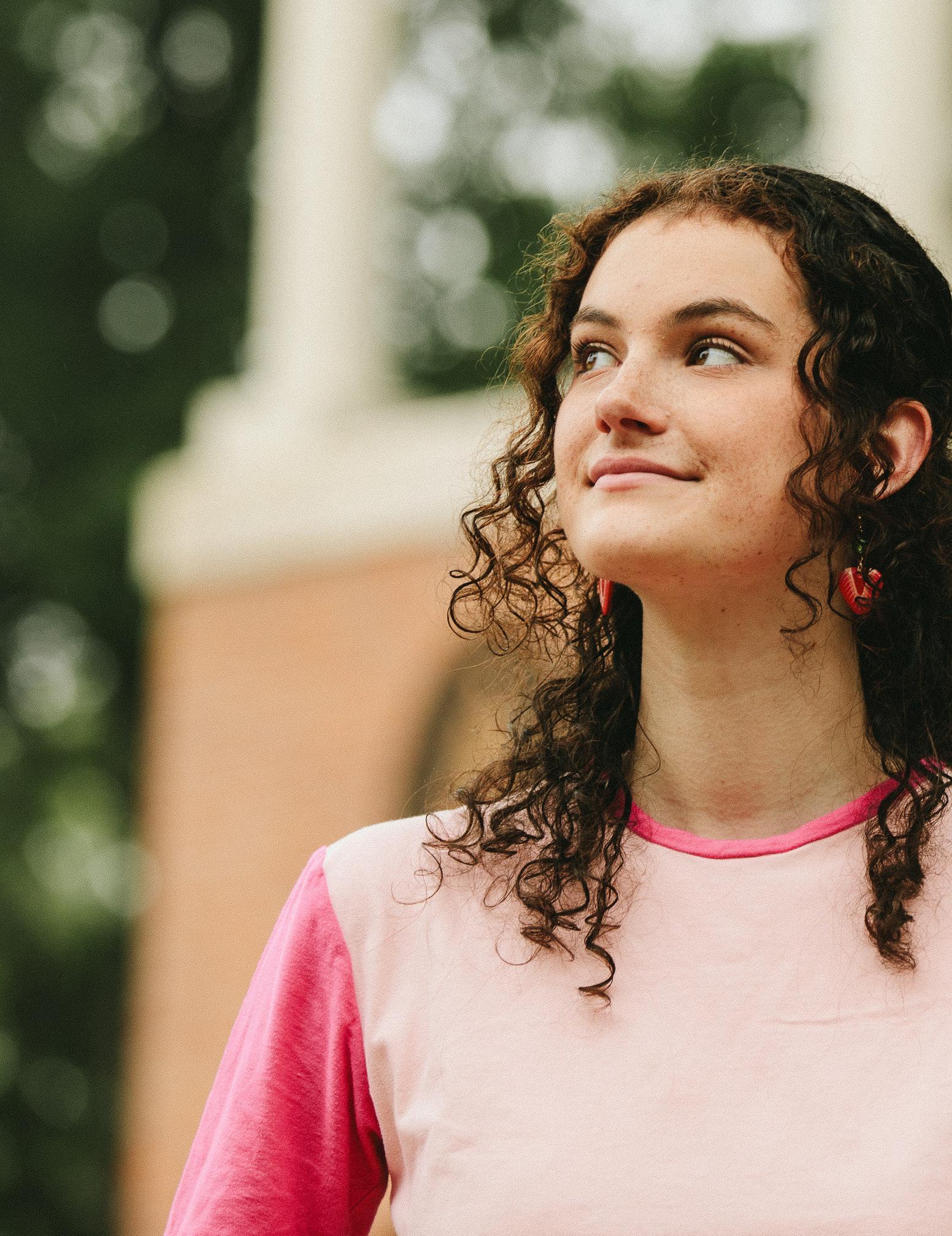
STAY CONNECTED TO THE PEOPLE AND THE PLACE THAT CHANGED YOUR LIFE FOREVER.
BECOME A LIFE MEMBER TODAY!
Two of Huntsville’s industry titans are coming together to provide a unique service that will benefit homeowners, farmers and gardeners of all experience levels. The Texas Research Institute for Environmental Studies (TRIES) has launched its partnership with Bearkat-owned Kim’s Home and Garden, offering soil testing services to any and all patrons.
Established in 1991 and housed at Sam Houston State University, TRIES Analytical Laboratory provides quality analytical services and method development to the academic and local communities, as well as clientele within the municipal, industrial and commercial realms. The lab, one of the core research laboratories and facilities operating under SHSU’s Office of Research and Sponsored Programs (ORSP) serves as a key partner supporting the university’s strategic priorities of engaging students, external partners, workforce leaders and the community.
Since joining the ORSP in 2022 as the business and administrative operations coordinator, Candace Prater and her peers have spent their time seeking partnerships with local businesses that would help establish TRIES Lab as a local leader in analysis and testing. On top of this, the
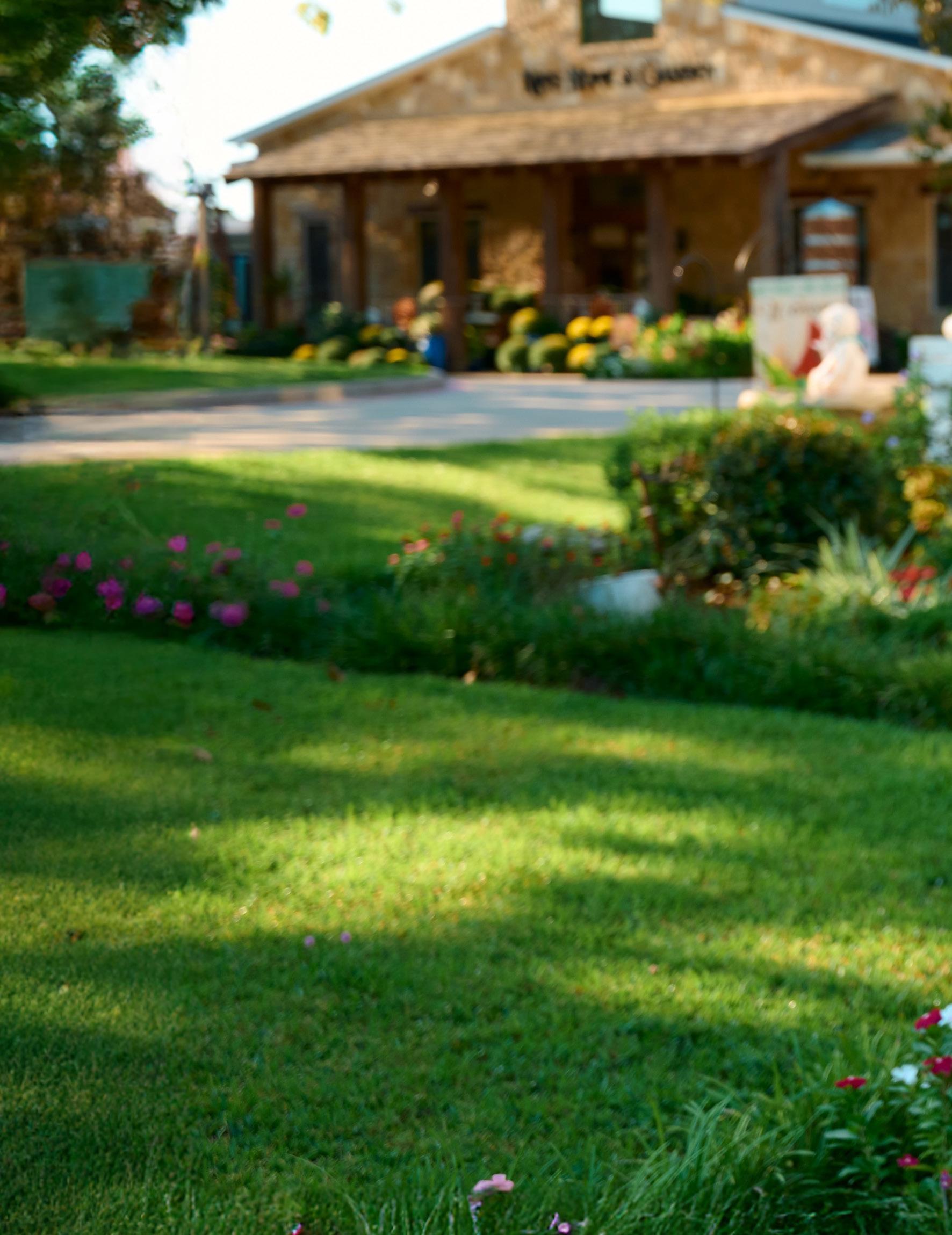
ORSP team was also seeking to collaborate with those open to working with their student researchers. When Prater connected with Kim Bius, owner and president of Kim’s Home and Garden, she felt as though the stars had aligned.
“She’s right around the corner from us, and she hires students, which is a big plus in our eyes,” Prater said. “Collaborating with her on this initiative will expose students to several areas that they could go into for work outside of the lab. It will also help us connect and create partnerships elsewhere, not just through Kim’s, but through her clients and vendors.”
Bius, a 1983 graduate, has spent the last 40 years making Kim’s Home and Garden a community-centered business with the reputation and offerings to reach clients well beyond Huntsville’s city limits. The commercial landscaper’s paradise offered soil testing kits to clientele before this partnership but weren’t quite as in-depth as Bius envisioned. When Prater approached her with the opportunity to partner with her alma mater and expand her business’s offerings, she knew it was just what she was looking for.
“Any time that we can offer a service to the public that is on the expert level, we go for it because that expertise
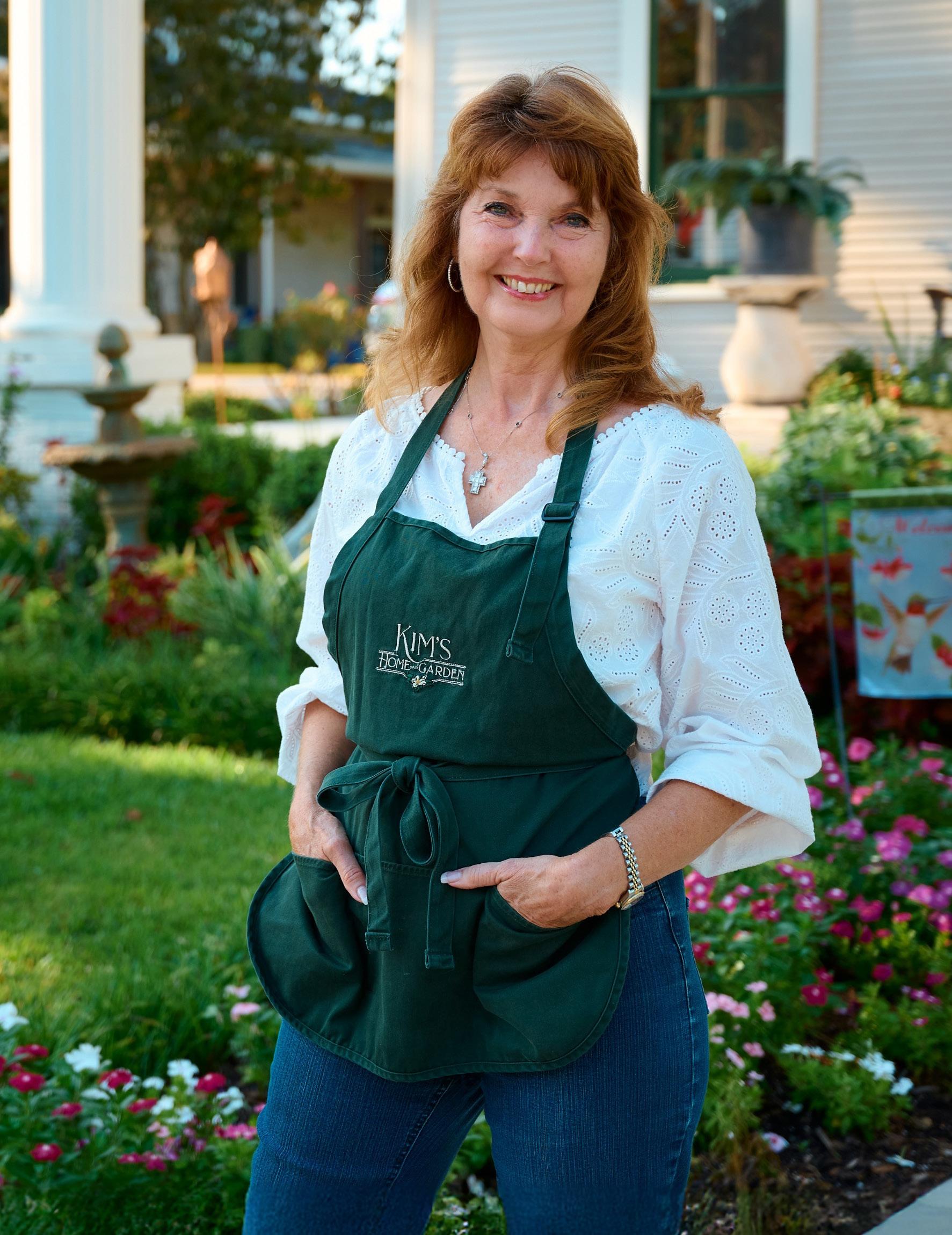
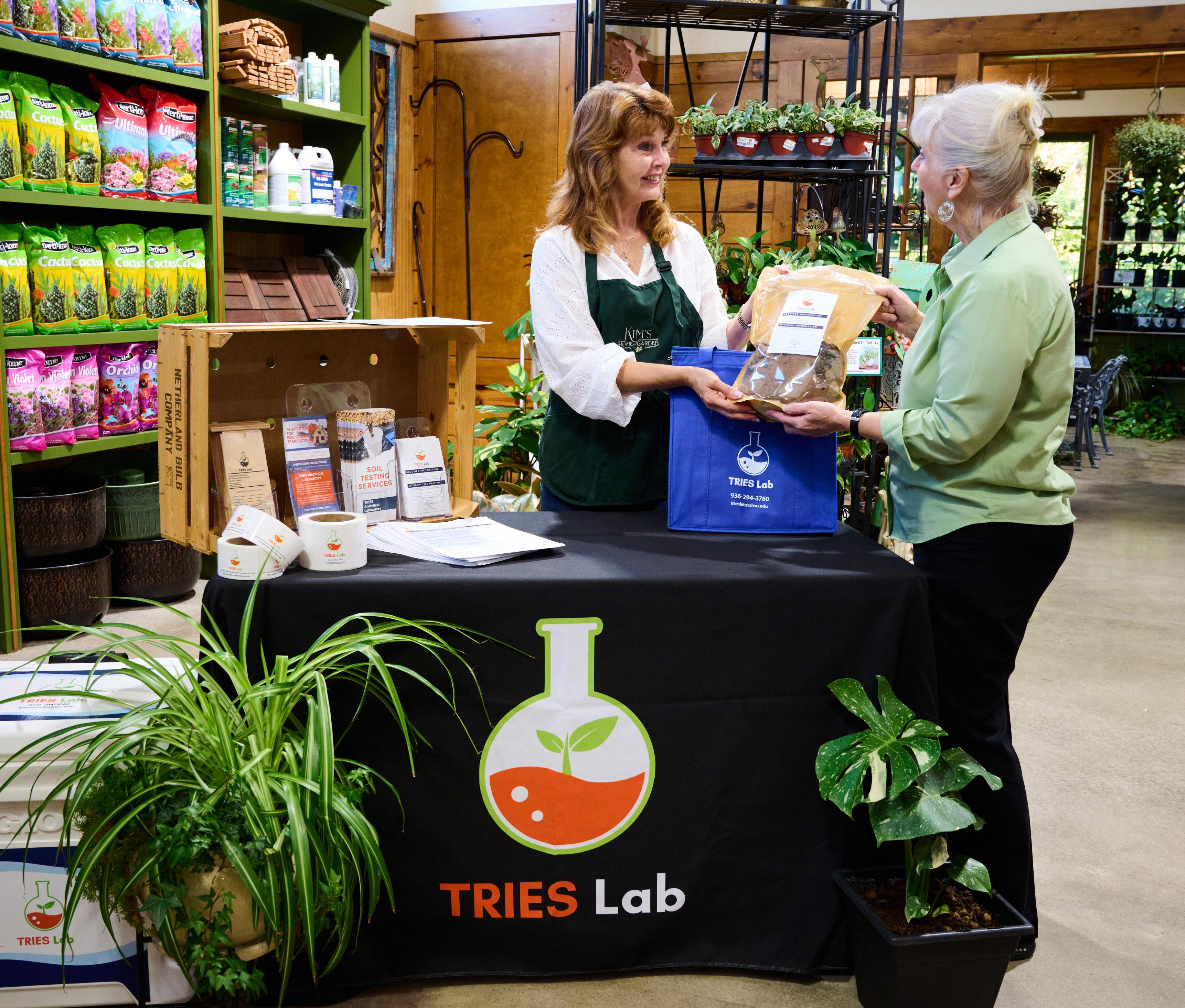
defines who we are,” Bius said. “Our customers can range from a homeowner, ranch or farm owner to gardeners and commercial landscapers. We cover a large gamut, but now we are able to offer this testing service to the full extent we had always hoped for.”
Through the testing of submitted soil kits, customers can identify factors that may impact things like crop yields, bloom timing and longevity. From there, Bius and her team at the garden center can step in and provide advice on how the customer can get their soil’s composition to be perfectly balanced for the plant varieties they aim to cultivate. Having the service on the garden center’s roster will also serve as a selling point, allowing patrons to have a one-stop shop to get all the supplies, advice and expert analysis on how to keep their gardens thriving during and after growing season.
“You never know where a new opportunity is going to take you and this partnership lets us offer more of a full spectrum of services in the garden center,” Bius said. “Even though our
center is among the best in Texas, this gives us another layer of expertise to add to what we already do.”
On top of its service to the community and growth potential for Kim’s Home and Garden, the partnership with TRIES Lab serves as a catalyst for a lab that has been here to assist the community since its inception. As both the lab and the business plan to grow together, the main thing at the front of the partners’ minds is how they can best serve the people of Huntsville and surrounding areas.
“There are so many things we do at TRIES Lab, and our community needs to be made aware of it,” Prater said. “Kim has a stellar reputation, and people respect her, so when they see her sending things off to TRIES Lab, they’ll know it meets her standards and is something they can trust.”

HERE TO HELP
IN THIS SECTION:
Cultivating Future Ag Teachers Student Research Reaching Beyond Partnerships Drive Regional Prosperity
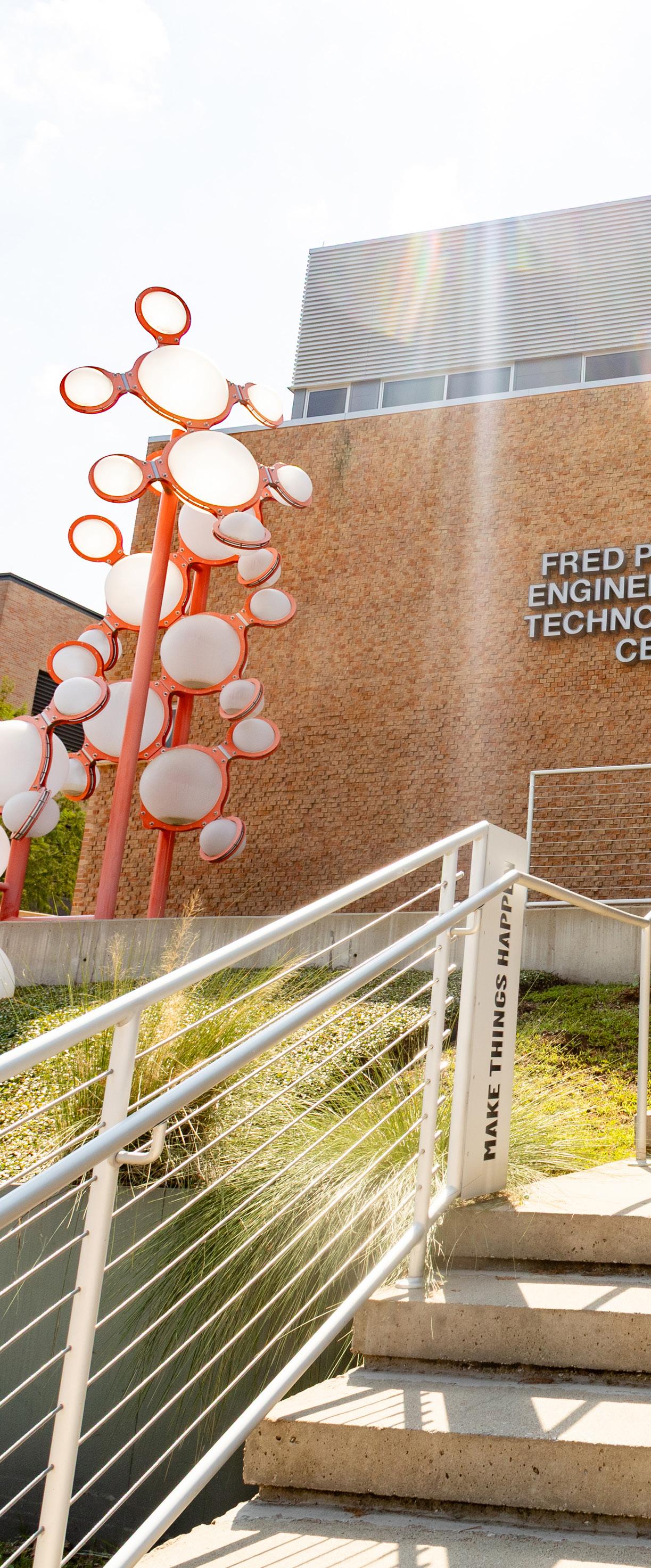
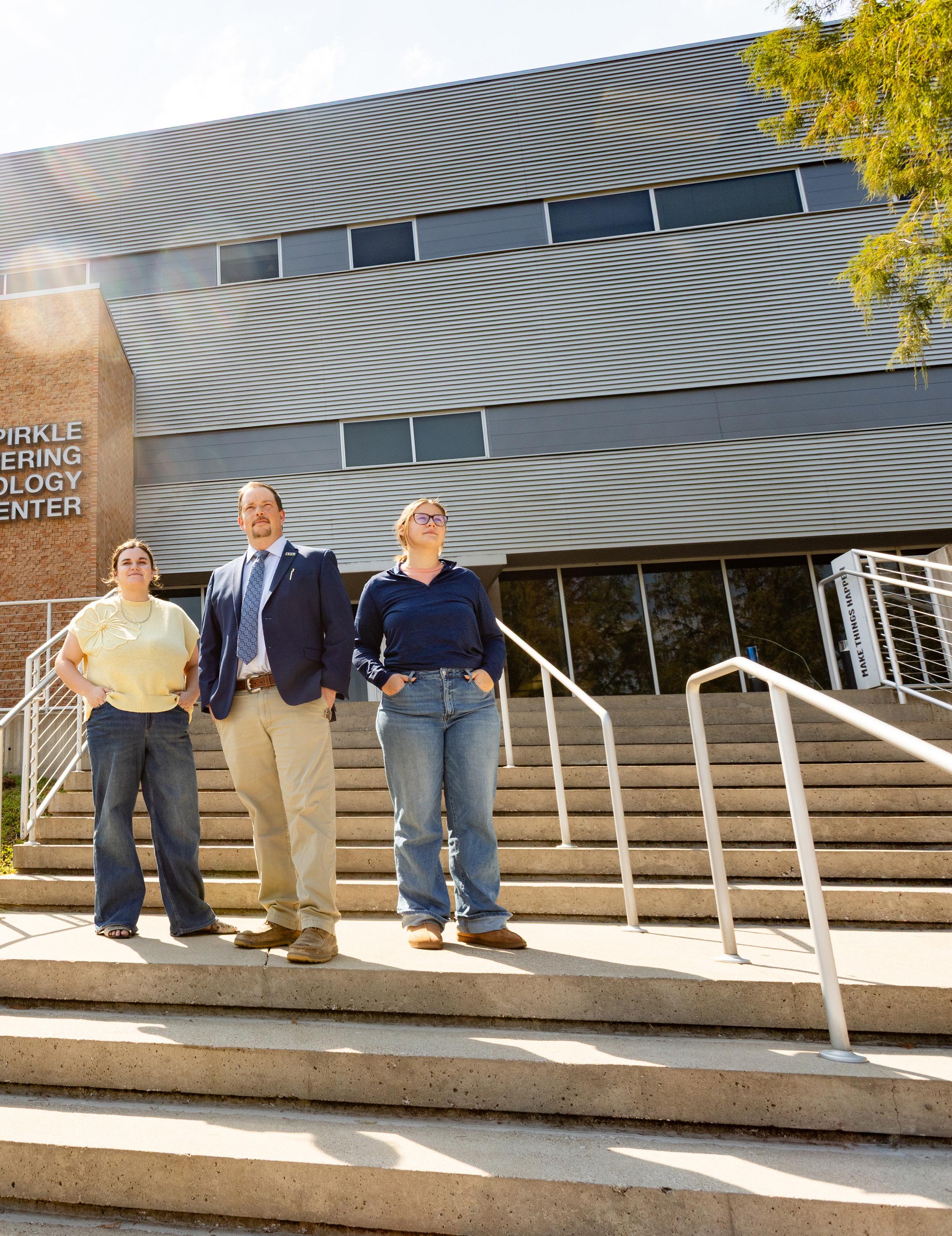
In 2024, Sam Houston State University’s School of Agricultural Sciences was awarded a $750,000 Non-Land Grant Colleges of Agriculture grant from the U.S. Department of Agriculture’s National Institute of Food and Agriculture to enhance the learning and preparedness of future ag teachers . To carry out this initiative, SHSU has partnered with Texas Tech University, Texas A&M University-Kingsville and the Texas FFA Foundation.
The collaborative project centers around the Texas FFA Foundation’s Leadership Education Advocacy Development (LEAD) Series, which connects current and future teachers with the best professional development practices in the field. The Cultivating LEAD program features three components for interested students to enhance their learning.
Mark Hainline, assistant professor of agricultural education at SHSU and the grant’s principal investigator, was thrilled to offer the LEAD series to his students. He sees the program as a way to immerse the pre-service teachers into all aspects of agriculture, broadening their horizons and preparing them to fully engage their future students.
“The Texas FFA Foundation is enthralled by this groundbreaking program,” Hainline said. “The feedback we are receiving from the foundation continuously highlights how the program is forwardthinking, to the point where they expect other states to try and copy what we’re doing.”
In 2025, the LEAD program partners brought together over 30 students on a tour around the state, stopping in Austin, Fort Worth, Waco, Houston, San Antonio, McAllen, Edinburg, San Marcos and everywhere in between. Along their route, the future ag educators visited the Texas Farm Bureau, Cinnamon Creek Ranch, Pilgrim Processing Facility, Justin Boots Headquarters,
Wonderful Citrus, McCoy Building Supply Headquarters and more. At each stop, the Cultivating LEAD Summer attendees would tour each facility and learn from each organization’s leadership.
The summer program was a roaring success among the attending students, mirroring the success of the Legislative LEAD experience that brought seven students to the state capital last November.
The program was especially impactful for students like Emily Yates, a junior in Hainline’s agricultural education course and a member of the SHSU Ag Ambassadors. As someone who is driven to become the best ag teacher they can be, Yates jumped at the opportunity to attend the Cultivating LEAD program over the summer.
“I knew I wanted to go out there and meet ag teachers and talk to them about their experience in the field,” she said. “I only saw the FFA program at my high school, so it was interesting to talk to all these teachers from different high
schools all around Texas.”
It wasn’t just the interactions with working ag teachers that broadened Yates’ horizons. The other stops along the trip exposed her to the inner workings of agricultural processes that she didn’t have access to living in Katy, a suburb of Houston. Following the experience, she gained a deeper understanding of all facets of agriculture and is now better equipped to share that knowledge with her future students by drawing on the new connections she established.
“This program is important because it shows the students on this path not only what it’s going to look like, but what all goes into the foundation that you’re about to grow and teach these kids in,” Yates said. “You’re seeing everything that goes into it, experiencing it all. You’re meeting with all of those who have given to the foundation and want to support us, as well.”
SHSU’s agricultural education students weren’t the only ones providing positive feedback. Hainline shared how those they met with were impressed with the students’ drive to
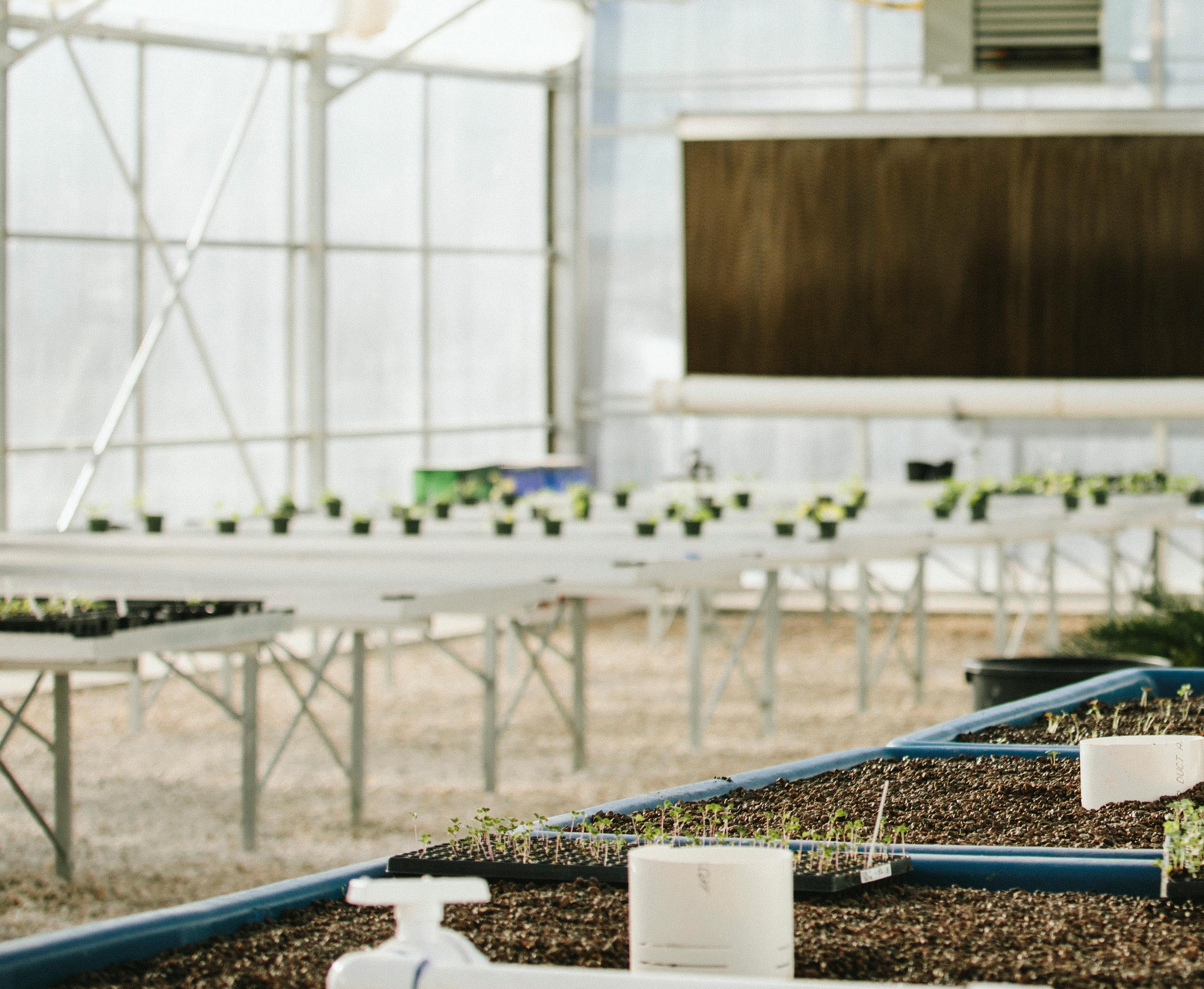
educate the next generation of industry leaders.
“These students are already getting their foot in the doors of mentors and employers,” he said. “Teacher socialization and networking is vital teacher retention, and many novice teachers feel isolation which can lead to attrition. This program provides a foundation to socialize these emerging teachers with teachers currently in the field and with industry leaders across the state.”
Thanks to the early success of the program and the accolades Hainline and his colleagues (Professors Marueen Victoria, Shyam Nair, Rudy Ritz and Boot Chumbley) are receiving from the Texas FFA Foundation and state legislators, they are planning to expand LEAD’s reach. Next year, they aim to include students from Stephen F. Austin State University and Texas A&M University in Cultivating LEAD Summer Experience. While they have big plans for the future, Hainline and Alexander Alejandro from the Texas
FFA Foundation are also preparing to earn more funding to continue the program beyond their initial grant’s expiration date.
“This is not something that’s going to die after the fouryear period. Even if we don’t get another grant, we’re going to find more funding sources to keep this going,” Hainline said. “Starting this collegiate initiative adds to the prestigious legacy of Sam Houston State.”
Legislative LEAD – A two-day event covering government and leadership topics, providing students with first-hand experience interacting with legislators to advance educational and agricultural legislation.
Cultivating LEAD Summer Experience – This weeklong program takes participants across the state to learn agricultural literacy, leadership development and engagement with current agricultural science educators.
Online Leadership and Policy Modules – Using these flexible, online resources, students can enhance leadership skills and agricultural policy understanding at any time.
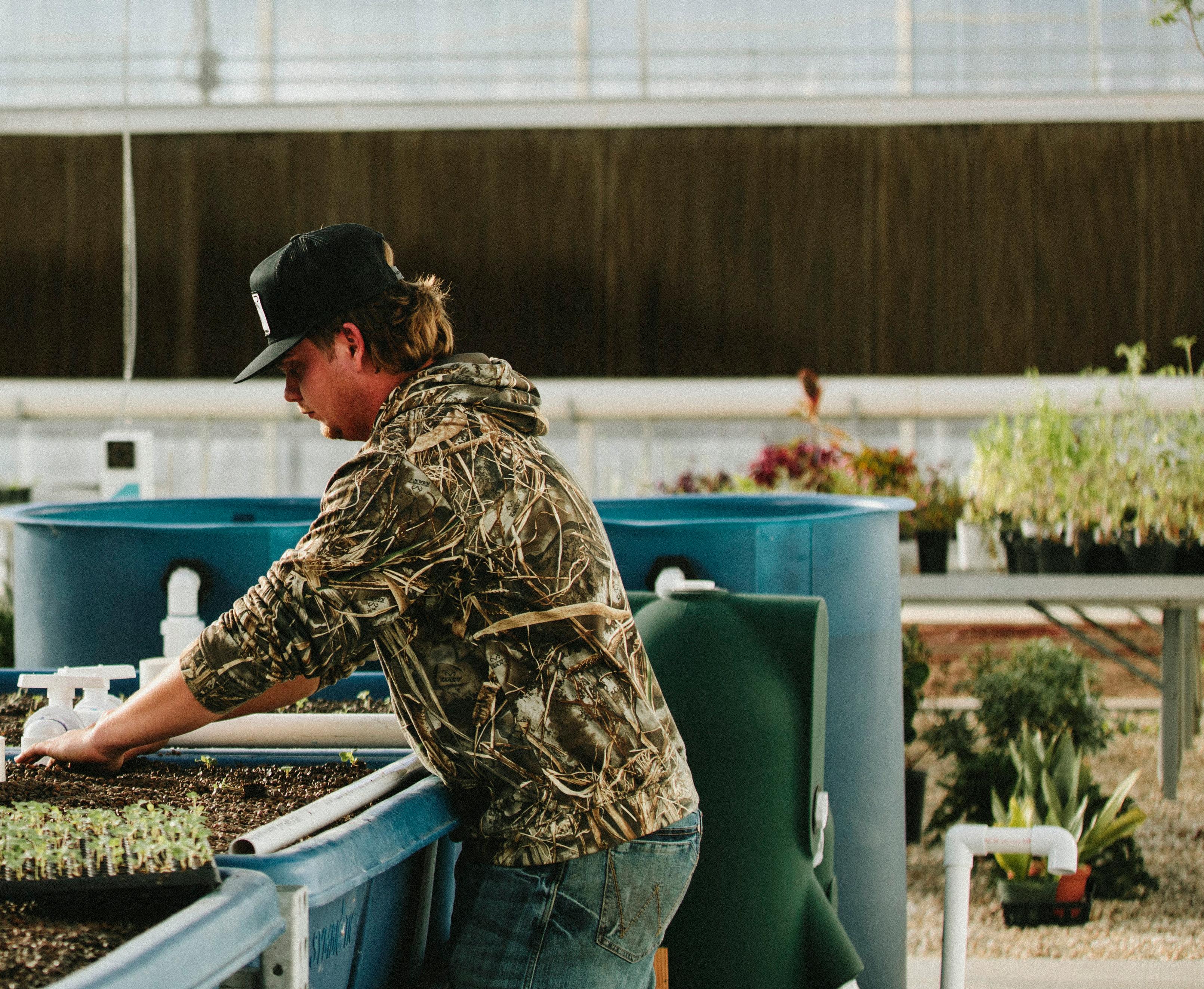

Sam Houston State University’s transformative partnerships with world-class institutions provide all students with a unique opportunity to make a difference in the world. Through its distinguished collaboration with The University of Texas MD Anderson Cancer Center in Houston, three Bearkats found themselves on the front lines of one of society’s greatest battles.
Through this connection, SHSU students Cody Griffin, Kyleigh Howard and Kenia Grimaldo were selected to participate in MD Anderson’s highly competitive Partnership for Careers in Cancer Science and Medicine (PCCSM) summer research program, a part of the Cancer Advanced Training and Learning for Young Scientists Summer Training Programs.
“This opportunity means a lot and fuels the fire to thrive and conquer anything that is in front of me,” Griffin said. “It offered a way for me to contribute to this fight and honor those who have this disease with the knowledge I have gathered through years of education.”
Griffin, a senior majoring in biomedical sciences with a minor in psychology, participated in lab research under Dr. Varsha Gandhi of MD Anderson’s Department of Experimental Therapeutics, Division of Cancer Medicine and Dr. Natalia Timofeeva, postdoctoral fellow in the Department of Translational Molecular Pathology. At the end of the program, he was able to independently conduct experiments and perform data analysis.
“Science is definitely a field where you can become discouraged or confused in terms of what you want to do,” Griffin said. “Having the opportunity to come to MD Anderson and work with professionals who help with your development and make you feel at home is invaluable. Going through this process will be very beneficial to others, as it has motivated me in my career path.”
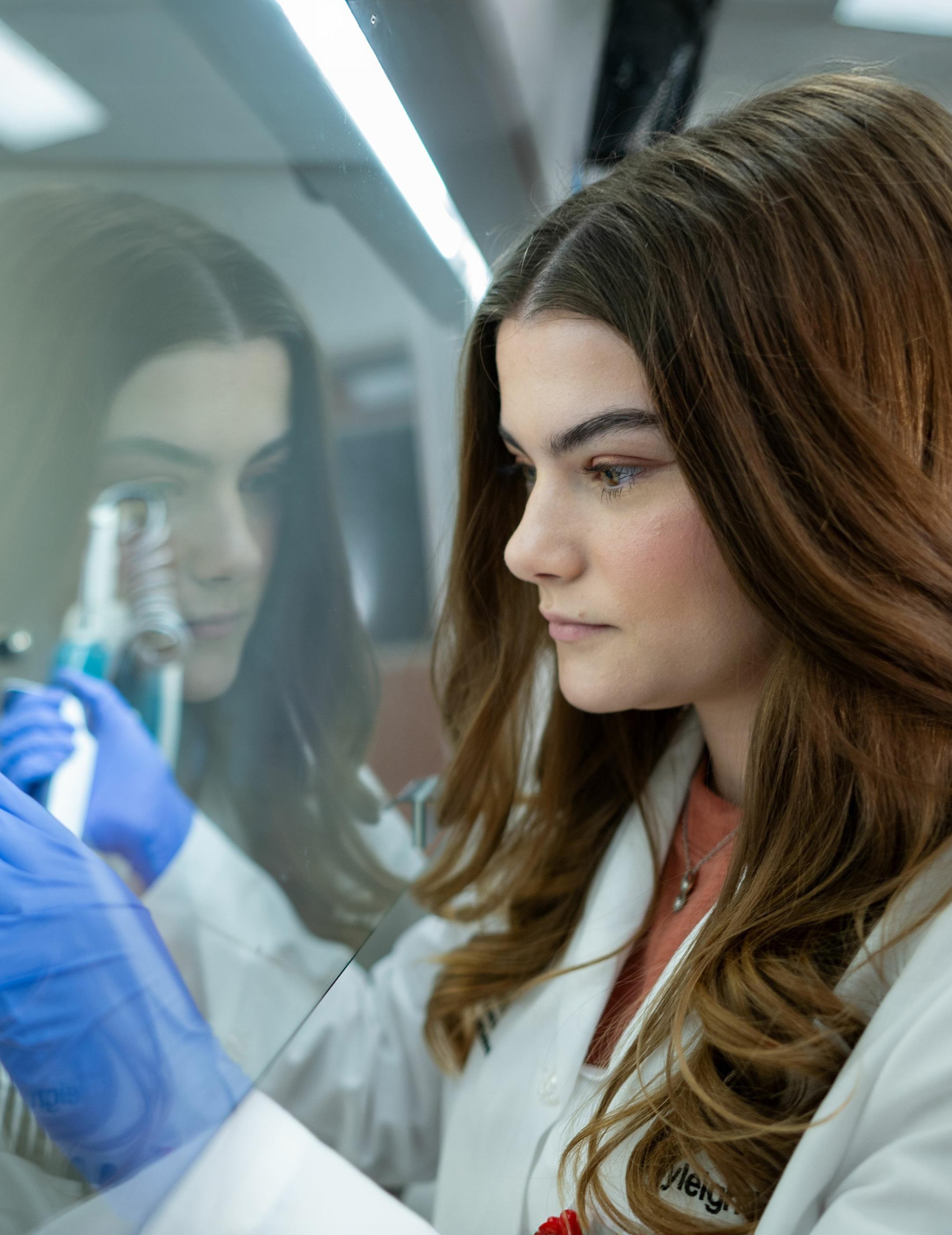

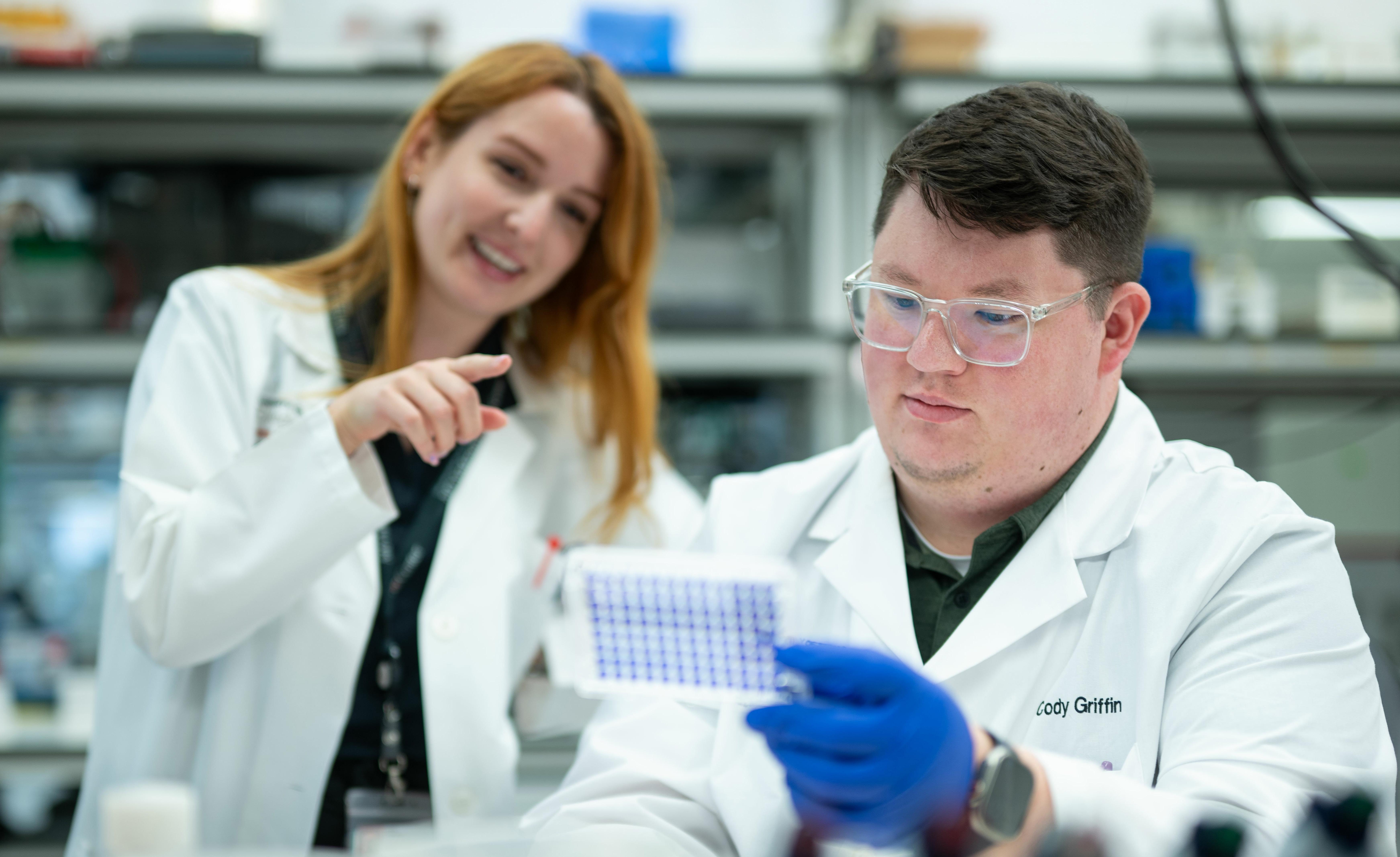
Howard, a forensic biology major, also spent her summer in the lab learning new techniques and honing her knowledge of DNA and cellular processes.
“It has definitely reaffirmed my love for science and what I want to do with my life: pursue research and lab work,” she said. “It is extremely meaningful to me to be able to put work into trying to find a cure, as I have loved ones who have struggled with cancer, including my grandpa, who is currently struggling with it.”
Howard’s mentors, Dr. Gandhi and Dr. Evan Cohen, Department of Transaltional Molecular Pathology, raved about her involvement and progress. Under Gandhi’s leadership, she was able to utilize her strong organizational skills to thrive in new areas throughout the process.
“I learned about staining protocols and a broad range of cancer biological topics that I know will help me in my future career,” she said. “I would definitely advise others to apply for this program, because it is very rewarding.”
Grimaldo, a recent graduate from SHSU in biomedical sciences with a minor in psychology, spent her summer learning ways to process digital data under Dr. Christopher Bristow.
“It was a unique experience because we did biomarker research, which really helped me understand how much work actually goes into diagnosing,” she said. “I know quite a few people who are fighting cancer, so it makes me proud to be able to fight that battle with them.”
In 2022, Sam Houston State launched the Building Research, Innovation, Discovery and Growing Engagement (BRIDGE) Program, a visionary initiative designed to stimulate high-impact interdisciplinary research that addresses local

and regional challenges.
Supported by the Provost Innovation Fund, the program established four inaugural awards that reflect SHSU’s deep commitment to student success, regional development and societal progress. These projects engage faculty and students across departments with lasting benefits for East Texas and beyond.
The initiative includes the Biomedical Research, Innovation, Training and Employment (BRITE) Consortium, which aims to boost SHSU’s research capacity and connect students to careers in the biomedical sciences. The BRITE Consortium has stimulated applications for multiple external biomedical grants, forged new partnerships with MD Anderson and other regional institutions and funded the research projects of over 20 undergraduates.
“Our intercollegiate team has been able to broaden our impact to students across the biomedical spectrum,” said Mardelle Atkins, professor of biological sciences and one of the principal investigators for the BRITE Consortium. “It has allowed Sam Houston to offer more of these opportunities and grow our presence in the region so that when employers look to build the workforce, they will look to our students.”
Along with Mardelle, BRITE’s PIs include SHSU professors Sharmin Hasan (biomedical sciences) and Donovan Haines (chemistry), who formerly served as the chair of his department. The team had established a working relationship with Dr. Ashish Arya, program director at MD Anderson, prior to the consortium, which led to his involvement in early BRITE initiatives, such as visiting campus to discuss opportunities in the field.
“Talent is universal, opportunity is not,” Arya said. “What
PCCSM tries to do is provide opportunities to those who are talented but might not have been exposed to these opportunities. We approach professors who are on the ground with these students at their universities, because they are in the best position to spot that talent.”
SHSU’s first cohort did not disappoint. During the full-time, 10-week cancer research program, the students acquired in-depth experience in basic and advanced scientific research, computational skills and translational research in the fight against cancer.
“Our long-term hope is to light a fire in motivated individuals who, at the end of their undergraduate program, are confident and enthusiastic enough to see graduate school as a realistic possibility,” Arya said.
Weekly seminars and workshops, which cover a broad range of topics, are held for all summer program trainees. However, immersive research training, while conducting a mentored research project in an MD Anderson laboratory, is the main focus of the summer program.
“Students who are inclined to go into the medical field are very interested in this type of work because it gives them hands-on experience in how research is translated to clinical practice,” said Dr. Gandhi. “Without translational lab research, we would not make any progress in regards to how we treat patients with cancer.”
Students receive a stipend of $6,800 before taxes for the program and housing is provided on a case-by-case basis. At the end of the program, the trainees present the results of their research as scientific posters alongside trainees from other summer programs at the MD Anderson Summer Experience’s End of Summer Poster Symposium.
Outside of BRITE, Atkins and her colleagues actively seek
I know quite a few people who are fighting cancer, so it makes me proud to be able to fight that battle with them.
Kenia Grimaldo " " SHSU Biomedical Sciences Graduate
dynamic partnerships in the region to provide students with the best possible opportunities. The professors personify the university’s constant effort to utilize education in the fight for a better tomorrow.
“Our dedication to service is part of the culture here at Sam,” said Atkins, whose sentiment was echoed by the students it directly impacts.
“Take the opportunity,” said Griffin. “I was scared when I first applied, because it was the first time I have ever tried anything like this, but it has done wonders for my professional pursuits.”
Grimaldo also encouraged students to take the leap while Howard added the importance of staying determined throughout the process, a direct reflection of the tireless battle to end cancer.
“It is definitely a lot of hard work,” Howard said. “I spent many hours in the lab on experiments and sometimes they worked out, sometimes they did not. It could be frustrating at times, but in the end, it is worth it.”
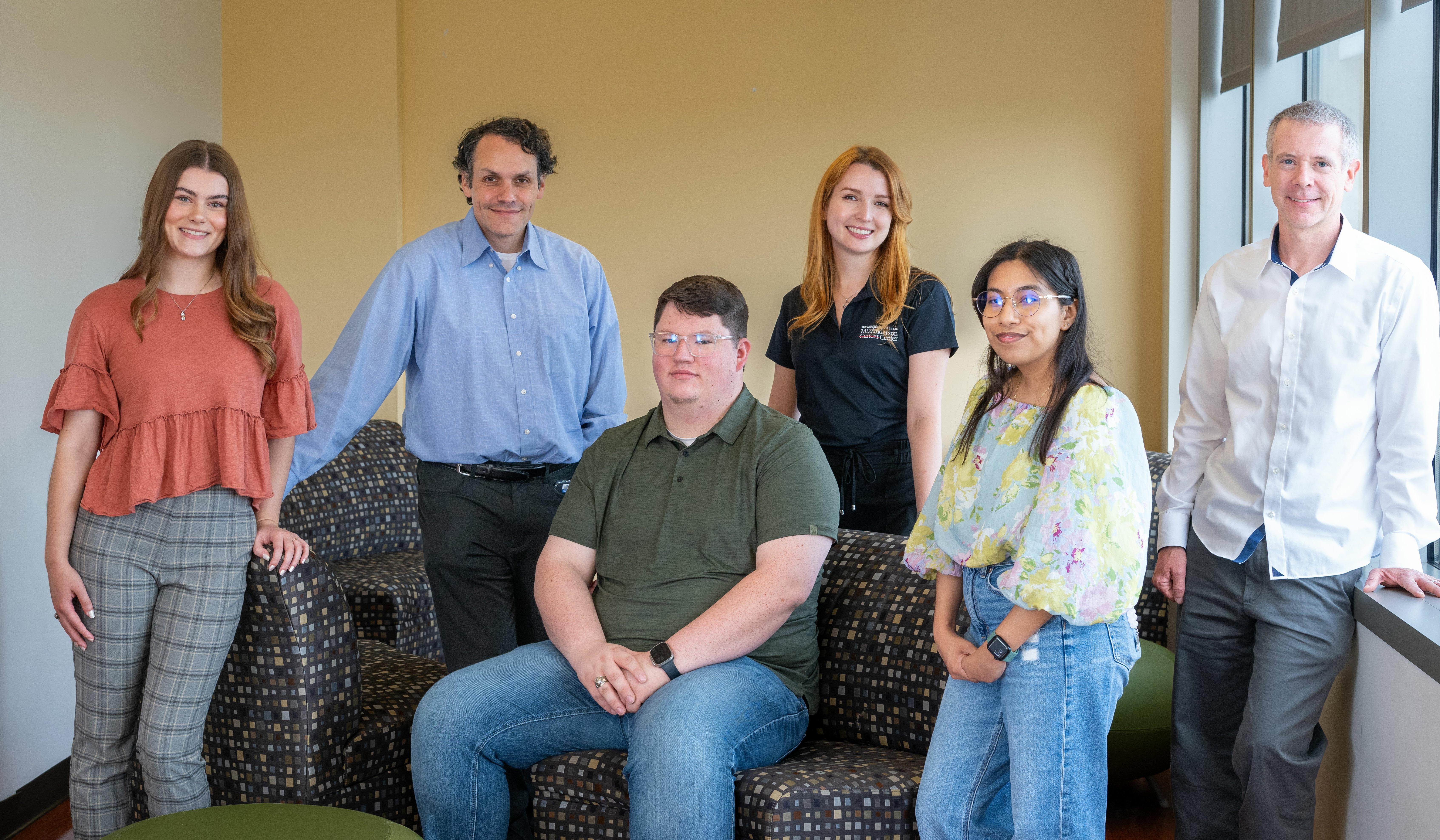

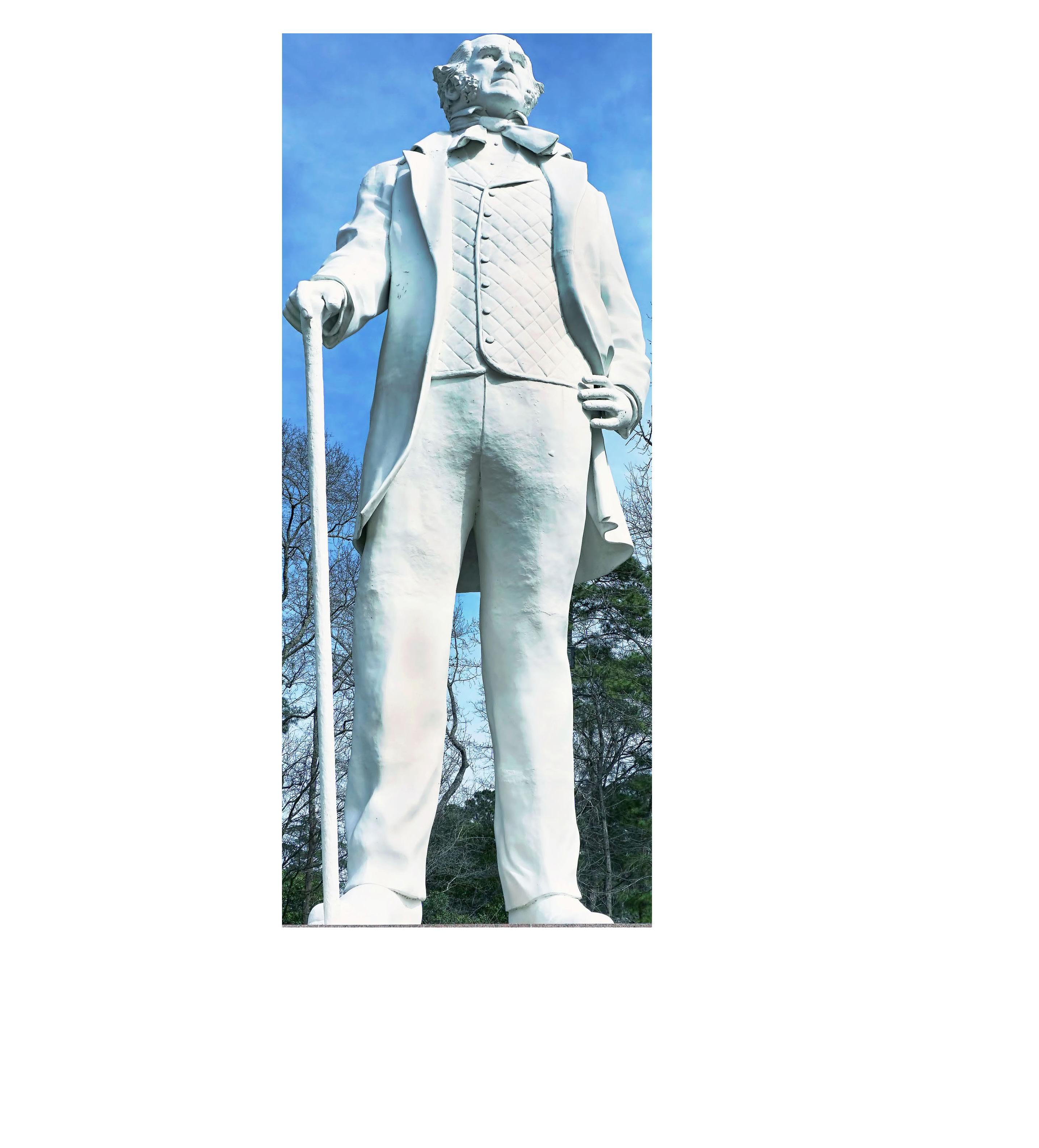
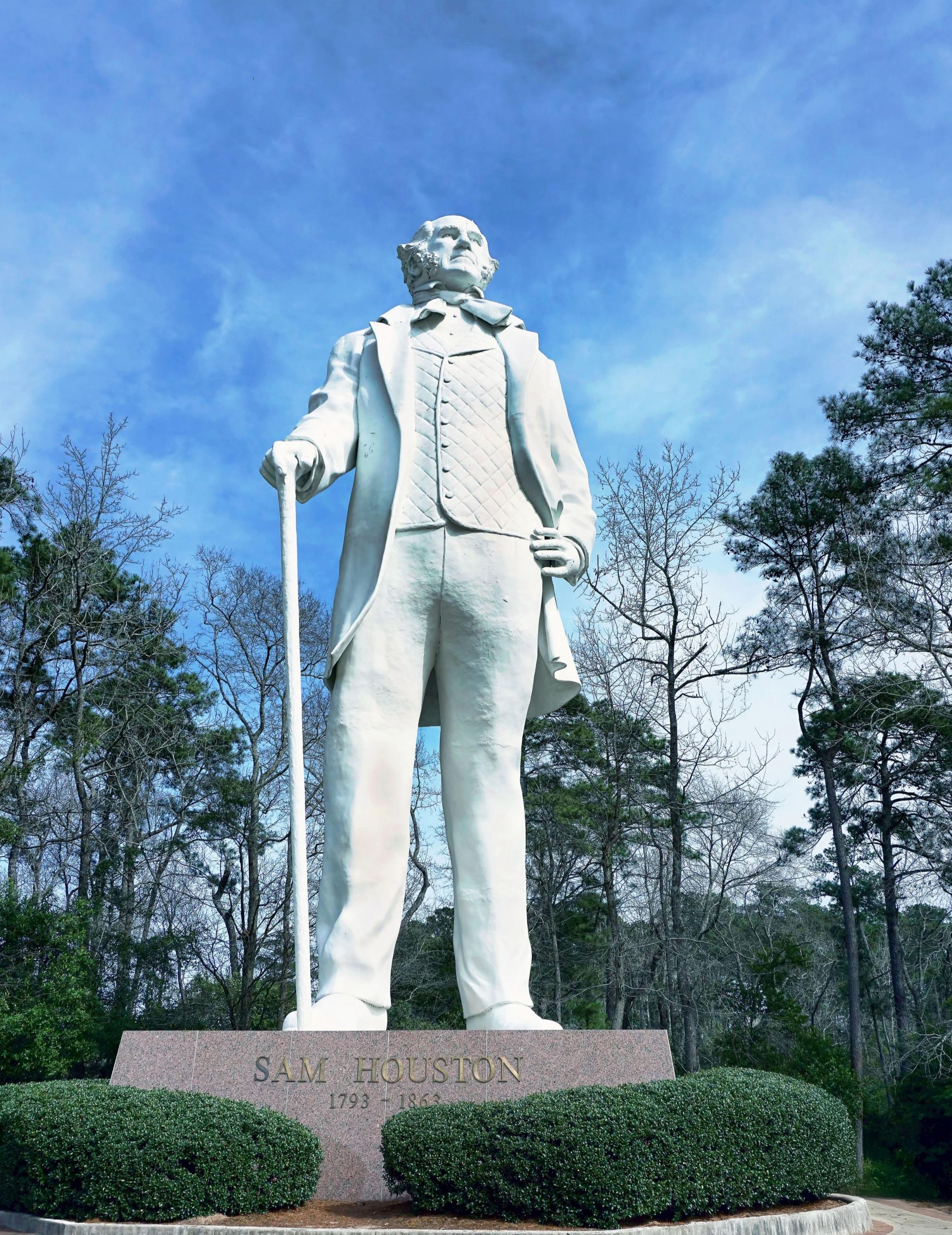

Sam Houston State University has taken a new step to strengthen both educational excellence and community prosperity through a powerful new partnership with local leaders: the Walker County Economic Development Corporation (WCEDC). This collaboration reflects a shared commitment to driving regional growth, creating opportunities and shaping a stronger future for Walker County.
The WCEDC was founded through the combined efforts of SHSU President Alisa White, Huntsville Mayor Russell Humphrey, County Judge Colt Christian and community leader Chris deMilliano.
“Walker County leaders have always wanted good things for our community, but each entity could only go so far on its own,” White said. “We now have a mechanism to work together and leverage our strengths and influence to do more than we ever could in silos. Walker County is important to Sam Houston State University, and we’re happy to be involved.”
The WCEDC’s mission is to drive sustainable economic growth and enhance quality of life throughout Walker County. To achieve this, the organization will focus on strategic initiatives such as fostering business development, securing innovative funding sources, advocating for
supportive policies and cultivating partnerships across the public, private, and academic sectors.
With Walker County’s economy deeply connected to public sector institutions, this partnership opens the door to transformative opportunities, including:
Student Success & Career Pathways: SHSU students can gain access to internships, entrepreneurial programs, and workforce training initiatives tied directly to local economic development projects.
Research & Innovation: The university’s research expertise offers valuable real-world solutions through joint ventures with the WCEDC and local businesses.
Economic Resilience & Growth: SHSU’s resources strengthen and diversify Walker County’s economy, fostering stability and long-term prosperity.
By uniting SHSU’s academic strengths with the WCEDC’s regional development vision, Walker County is poised to build a future where students, residents and businesses thrive together. This partnership exemplifies the power of collaboration, demonstrating how higher education and community leadership can work hand-in-hand to create a lasting impact.
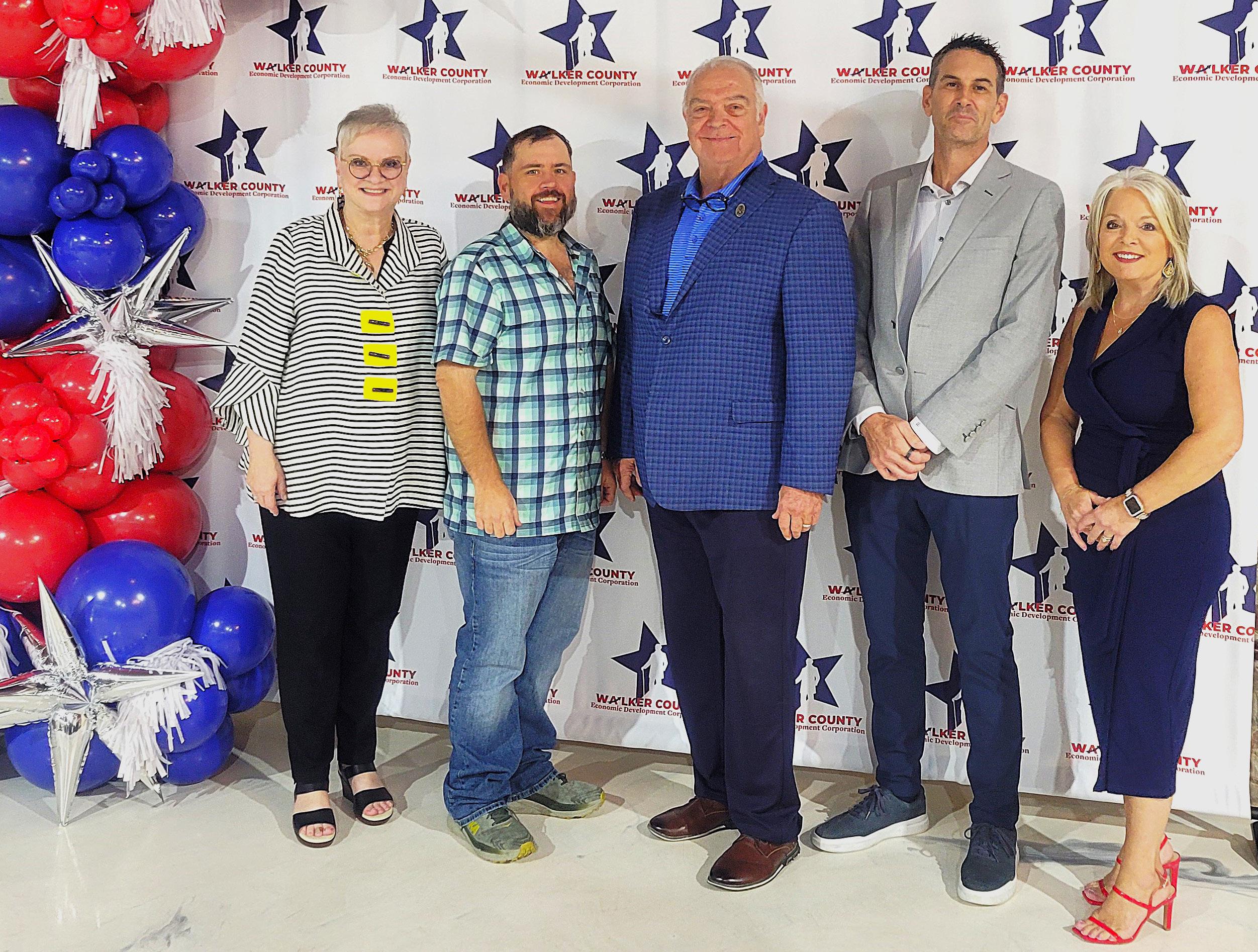
Dorothy Gene (Moore) Owen '46
David Pryor Adickes '47
Ophelia Hattie (Lindsey) Adams '48
Mary Helen (Fraser) Brown '48
Florence (Wallingford) Hughes '49
Adrian Bolton Cooley, Jr. '50 '57
Gladys Evonne (Marshall) Paradowski '50
Beverly (Riniker) Remmert '50
Mildred Elizabeth (Putz) Hummel '51
Yvonne Parkhill Fowler '51
Nancy Perkins Wilson '52
Martha Alice (Evans) Balusek '53
Betty Ann Coley (Gilbert) Fredeman '53
Helen Ann (Empson) Sellars '53
Dolores Hugh (Holland) Price '54
Peggy Sue (Pitts) Baldwin '55 '58
Maxine Duff '55 '67
Harvey Wayne Maddux '56
Charles Joseph Opersteny '56
Perry Arthur Smith '56
Monte Jack Driskell, Sr. '57 '61
Lowe Lang Galle '57
Ann (Dunn) Harris '57
Billy Ray Ware '57 '71
Bobby Glynn Grisham '58
Val Gean Hinze '58 '63
Nancy Jane (Baskin) Krause '58
Derry Jerry Mikeska '58
James Edward "Jimmy" Powell '58 '63
Francis Adolph Felcman '59
Joe Henry Moore '59
Martha Ruth (Robertson) Parrish '59
A. J. Pate '59
Charles Edward Price '59
Jerry Anderson Sandel '59
Maurice Leroy Simmons '59
Roland Alexander Brinkley, Jr. '60 '70
Mary Patricia Faltisek '60
Glenda Lee (Grant) Goehrs '60
Robert Donald Hilton '60 '63
Horace Leon Nail '60 '66
Milton Ray Oakes '60
Sue Ann (Cargill) Powell '60 '65
Ernest Blanton Price, Jr. '60
Robert Earl Taylor '60
John Elwood Birkelbach '61
Jon Charles Bright '61
Coralie Ann Emmons '61
Elbert Lloyd Flynt, Sr. '61
Jerry Clyde Franklin '61
Royce Gene Nettles '61
William Howard Murphy '62
Jerry W. Peveto '62
Stella (Beene) Butler '63
John Arthur Fleig '63
Jack Richard Gardner '63
Milton Lehman '63
Ronald Joe Mitchell '63
Herbert Holcomb O'Quinn '63
James Thomas Rabun '63
James Austin Caldwell '64 '69
Gerald Franklin '64
Glenda Sue (Buchanan) Hardy '64 '89
Travis Eugene "Gene" Jernigan '64 '65
William Lee "Billy" Baca '65
James Edward Collum '65
David Ian Habermacher, Jr. '65
Kenneth Wayne Hammond '65
Raymond Robert Kasmiersky '65
Patsy Lynn (Littlepage) Martin '65 '75
Barbara Gale (Eldridge) Morris '65
Jerry Bob Register '65
Wilfred James Rejsek '65
Virginia Sara (Priddy) Rotsch '65
Davis Nell (Ford) Craig '66
Troy Bevins McCraray, Jr. '66
Garry Lee Prince '66
Jack Don Simpson '66
Johnny Slovak '66
Martha Lloyd Tucker '66
Wanda Carlene (William) Willis '66
James Edward Dyda '67
Thomas Powell Fowler IV '67
Gowan Murphy '67 '67
Robert Wayne White '67
Patrick Eugene Albright '68
Gerry Wayne Ginsel '69
Jimmie Lester Grigory '69 '86
Larry Alan Newman, Jr. '69 '71
Jerry Don White '69
Anna Luz (Sandoval) Arredondo '70
Danny Denton '70
Mary Rose East '70
John Dare Evans '70
Virginia Lee (Kays) Keeling '70
Eugene Dolton Knox '70
Olga Aline (Defee) Kohrman '70
Dennis Wayne Kuykendall '70
Sue Lynn (Gardner) Langley '70 '78
Patricia Ann (Mahns) Loman '70
Orson Lane McCotter '70
Barbara Joyce (Summers) Neufeld '70
Jack Clark Purl '70
John Alexander Spears '70
Peter Valentino '70 '71
James Mac Wolfe '70
Pamela Sue (Shelton) Abrams '71
Curtis Allen Crabtree '71
Cathryn E. (Miller) Grigory '71 '76
Arthur Wayne Hansen '71
Martin Lee Koopmann, Sr. '71
Steven McGowen Martin '71 '73
William Green Sewell '71
Fannie Elkins (Katoka) Smith '71 '73
Stephen Ray Twidwell '71
Danny Ray Billingsley '72
Grover Garland "Gary" Fickes '72
Charles Alexander Green IV '72
Donald Ray James '72
Terry David Key '72
Randall Ray Murphy '72
Stephen L. Verschoyle, Sr. '72
Judy D. Ellisor '73
Ross Todd Gearinger '73
Larry Lee Graham '73
James Donald Holmes '73
Gary Lee Krone, Sr. '73
Mike McCarty Lansford, Jr. '73
Sue Ann (McMillan) Ware '73
Martin Jacob Weldon '73
Joanne Amelia (Buswold) Friday '74
Jeffrey Aljie Larson '74
Mary Louise (Abshier) Pierson '74
Sandra Kay (Henderson) Snowden '74
Terry Martin Brown '75
David Elzie Elmore '75
Michael Anthony Risinger '75
Sam Charles Alford '76
Billy Ray Lakes '76
Martin H. McGuffin '76
Patricia Annette (Pierce) Simpson '76 '78
Doris J. (McKnight) Teague '76
Frank Phillip Vavala, Jr. '76
Elvin O'Neil Kelley, Sr. '77
Melvin P. Southall '77
Jon William Volkmer '77
Jean Matilda (Loftin) Berger '78
Wayne Turner Brewster '78
Blair Norman Burleson '78
Robin (Lawrence) Cerny '78
Carolyn Sue (White) Edwards '78
Susan Yvonne (DeHoff) Griffith '78
Jarrett Jackson Kennedy '78
Kenneth Ray Parker '78
Marilyn Routt Thomason '78
Robert William Youngblood '78
Betty Sue (Bruce) Beene '79
Mary Claire Becker '80
Denis Martin Cowhig '80
Patricia Ann (Sweat) Mallory '80
Vicky Lee (Johnson) Speed '80
Gary Mills Wright '80
Era Lynn (White) Longmire '81 '85
James Edward Wray '81
Billy Dean Bishop '82
Mary Sue Glass '82
Delano Jay Genovesi '83
Joseph Braden Mattei, Jr. '83
Carolyn Powell (Shaw) Germany '84 '87
Norman Blake Taylor '84
Gary Raymond Vaughan '84
Victor Bazan '85
Anne Mooney Guidry '86
James Andrew Johnson '86
John Edward Valenta '86
Andrew James Schratwiester '87
Laurence Arnold Snyder, Sr. '87
Linda Lou White '90 '94
Sherry Kyleen (Chaney) Morgan '91
William Gardner Grear '93
Alisa Joan (Fagerquist) Cancino '94 '00
Linda Joyce (Tillman) Carr '95
Jeffrey Lyn Wilson '96
Jennifer Michelle (Kramer) Reist '97
Kelly Dawn (Oliver) Dial '00
Michael Presley Holcomb '02 '05
Krystal Marie (Vice) Ainsworth '04
Thomas Lee Stewart '04
Shannon Michelle (McGinnis) Horsley '08
*04/01/2025 – 09/28/2025
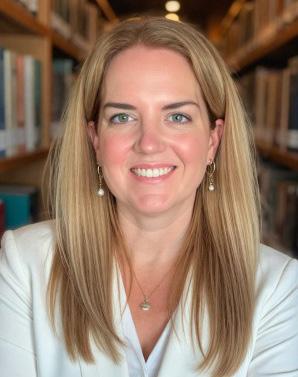
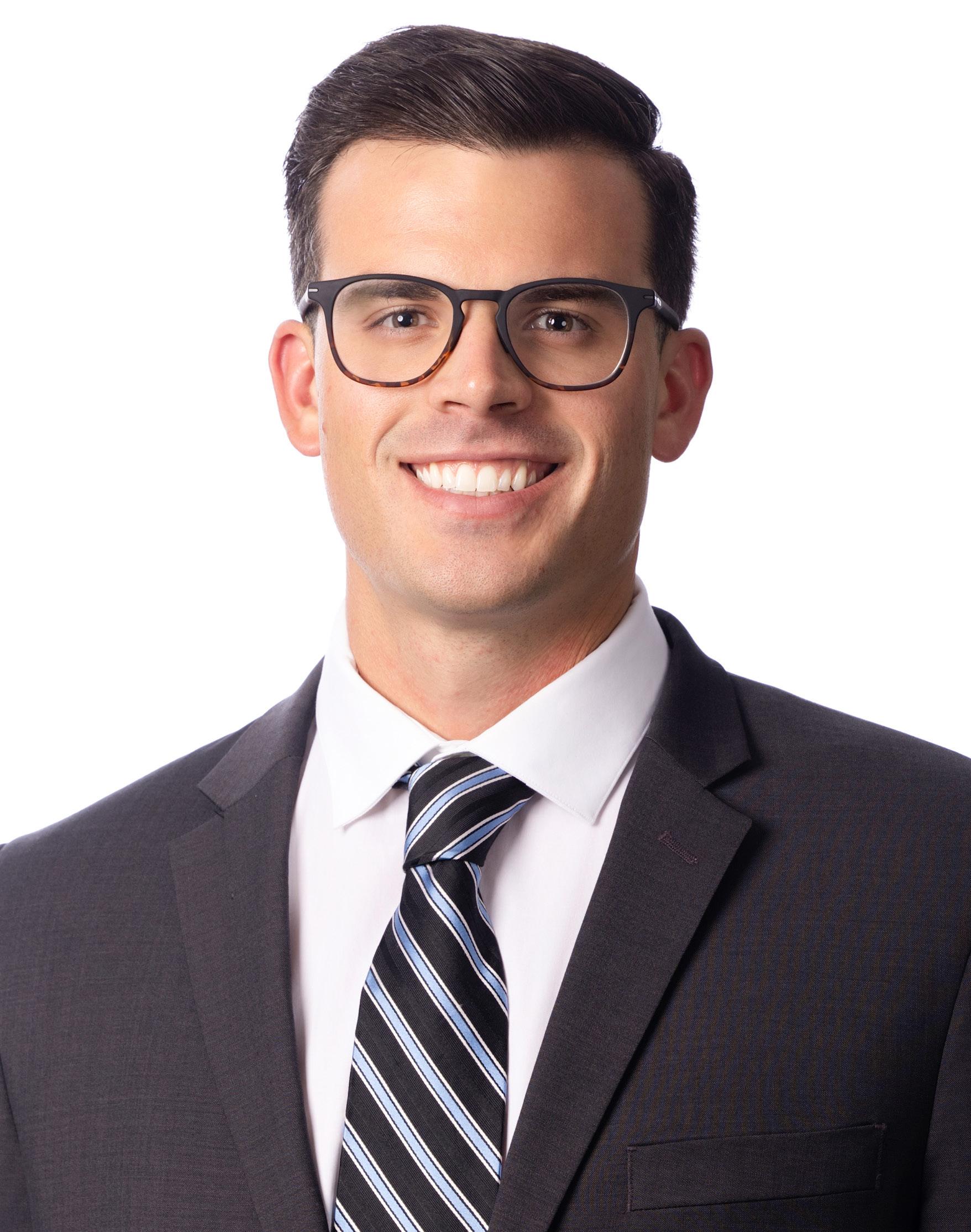
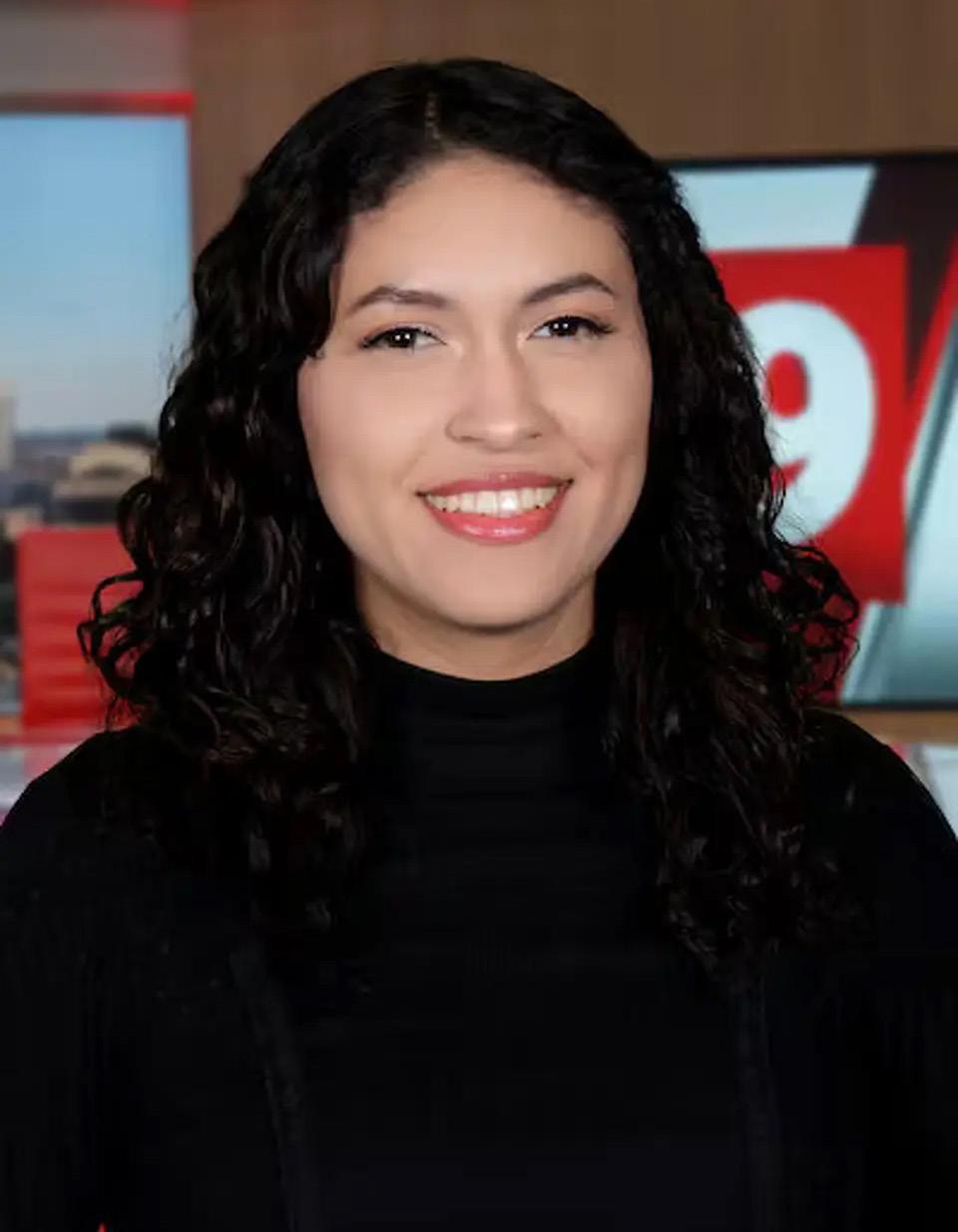
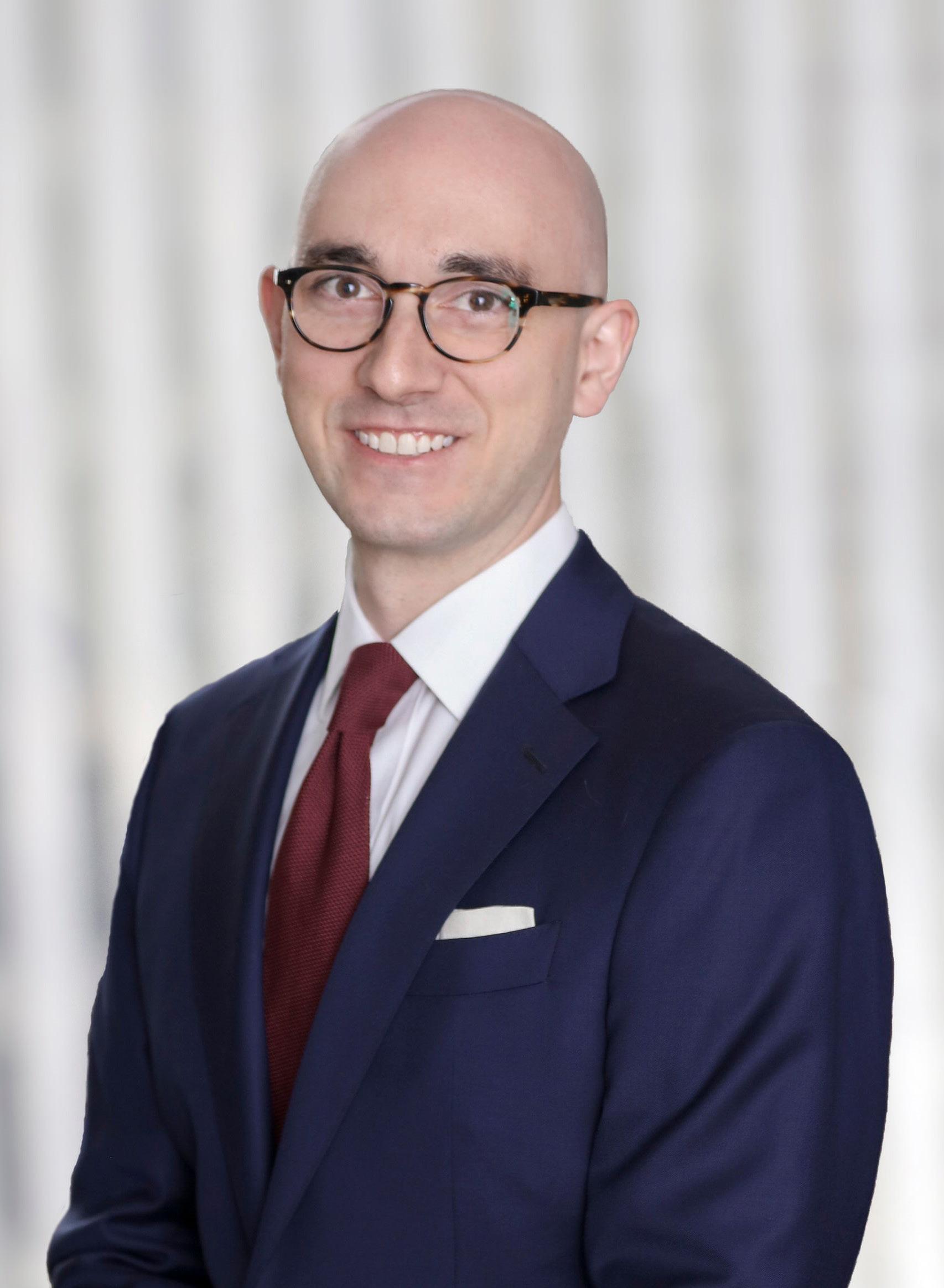
Ryan Bridges '11, '13, was appointed by Gov. Greg Abbott as chairman of the Texas State Board of Examiners of Psychologists. He is lead analyst for insurance risk management at CenterPoint Energy and also serves on the Texas Behavioral Health Executive Council, the Surplus Lines Stamping Office of Texas board of directors and as vice chairman of the Texas FAIR Plan Association Governing Committee.
Nathan Curry ’95, retired in March after more than 22 years as a federal criminal investigator, including 16 years as a special agent with the U.S. Department of Homeland Security’s Immigration and Customs Enforcement, Homeland Security Investigations. He now serves as an investigator with the Montgomery County District Attorney's Office.
Kevin Sherman ’97, band director at Stuttgart High School in Stuttgart, Arizona, was named the district’s Teacher of the Year. A music educator for more than 27 years, he recently led the SHS band to Division I ratings across the board in the state concert band assessments.
Bobby Lumpkin ’99, ’11, was appointed executive director of the Texas Department of Criminal Justice. He has nearly 35 years of experience in criminal justice and most recently served as chief of operations.
Charles Swan ’05, joined Austin’s Zach Theatre as associate director of advanced training, overseeing its musical theater and acting programs. He previously performed nationally before turning to education, including eight years leading the musical theater program at Houston’s High School for the Performing and Visual Arts.
Adam Thibodeaux ’07, became public relations specialist for TotalEnergies Port Arthur Platform. He and his wife, Kelsey, are also busy raising their six-year-old child.
Kristy Fields ’08, joined Sterlington PLLC in New York City as a partner in the executive compensation practice. She has extensive experience advising clients on compensation and benefits issues and was previously a partner at Simpson Thacher.
Stephanie Kosut Gregory ’08, president and clinical director of Prevail Behavioral Health & Wellness Center in Conroe, is opening a satellite office in Huntsville to serve Walker County.
Meghan Snow ’09, was hired as chief learning officer with the Association of College and University Educators. She began her career in education as a classroom teacher through Teach for America and has since held a variety of leadership and policy roles across the education sector.
Preston Fassel ’11, a cult horror/thriller novelist, recently expanded into film. His production premiered at Comicpalooza. Additional screenplays, The Book of Prior and The Eyes of Jefferson, are in preproduction.
Lindsey Mathis ’12, was appointed project manager of operations by the American Cleaning Institute, a trade association for the U.S. cleaning product supply chain. She supports internal operations and coordinates projects across the institute.
Travis Dibble ’19, joined Plains Capital Bank’s Corpus Christi lending team as assistant vice president and commercial loan officer. He has more than six years of experience in financial services.
Laura De La Rosa ’20, was appointed principal of Johnson Elementary School in Bryan ISD. She was recognized as the school’s Teacher of the Year in 2019 and as its Administrator of the Year in 2024.
Angie Rodriguez ’23, joined Houston’s Morning Show at Fox 26 as a reporter. She previously interned with Fox 26 during college, then worked as a reporter and multimedia journalist at WOIO and Telemundo Cleveland WTC.
